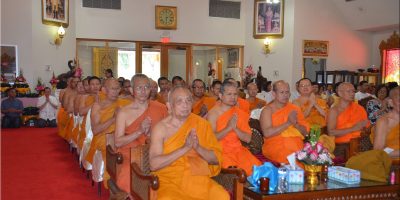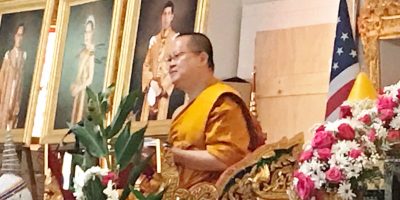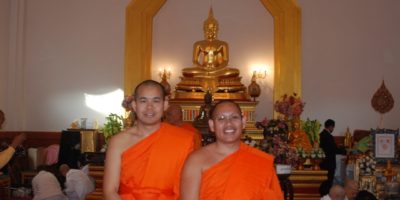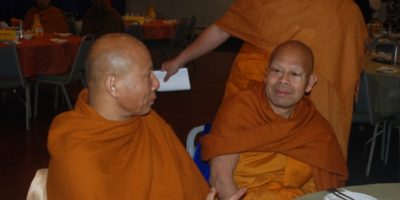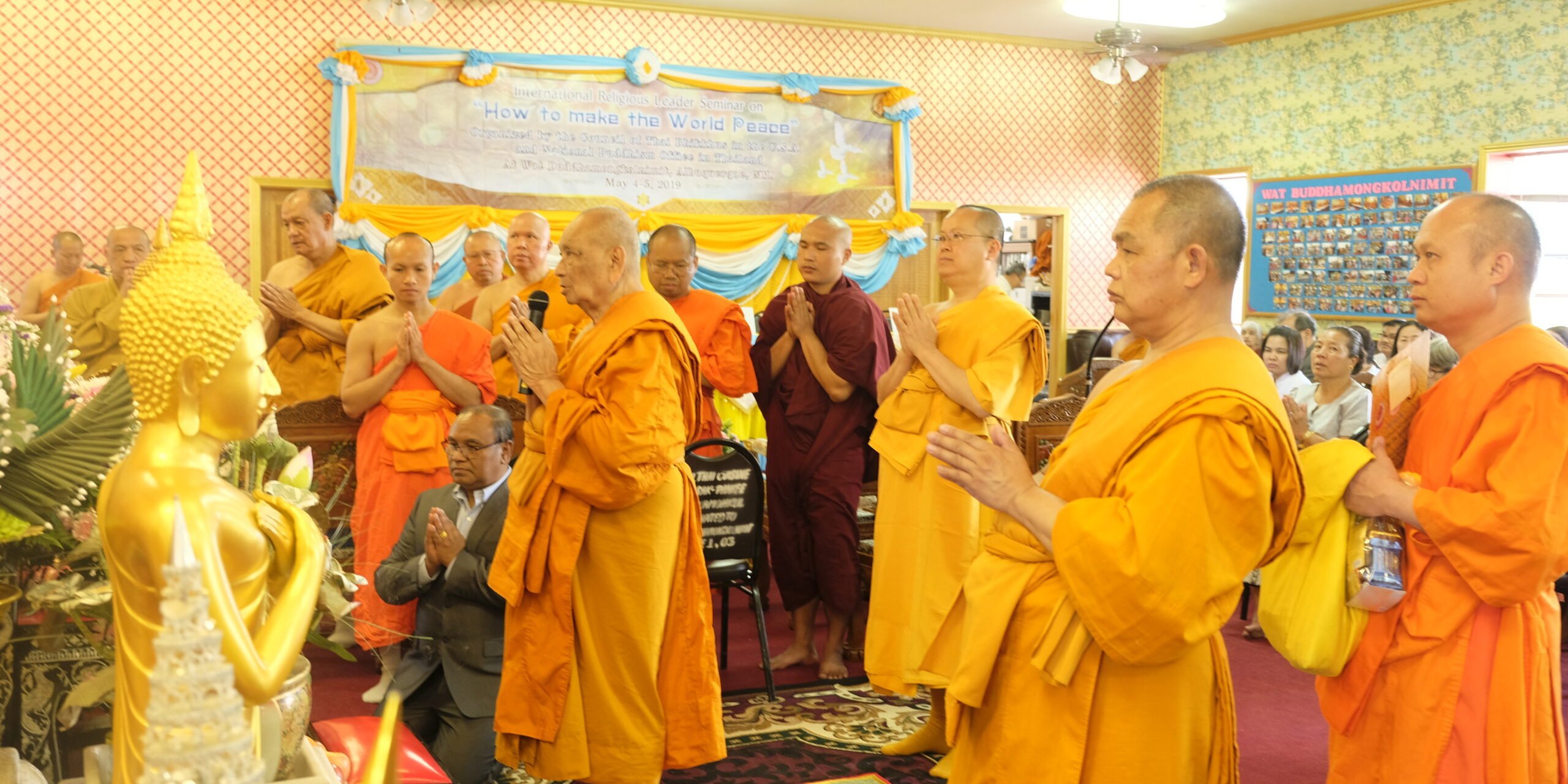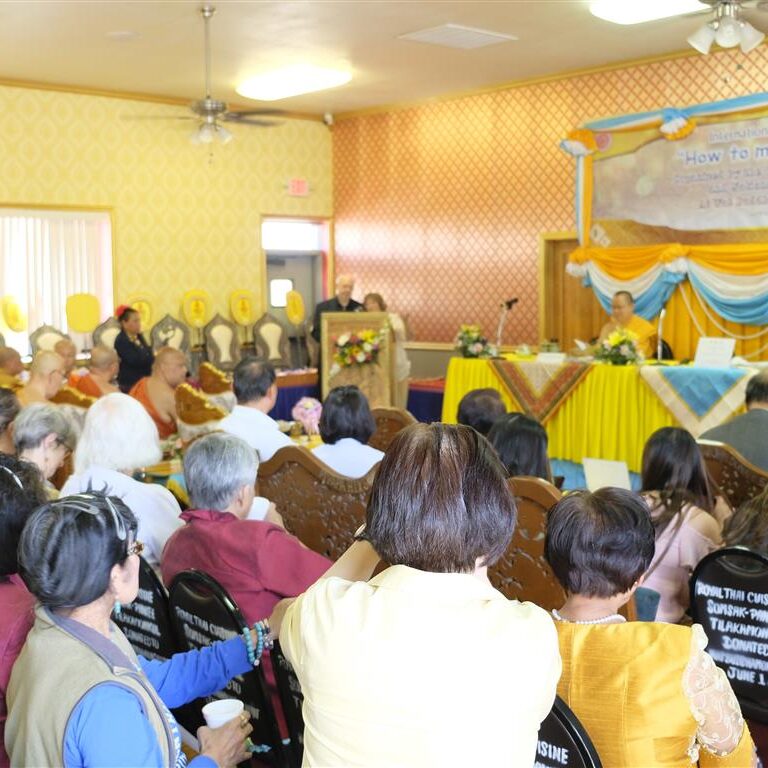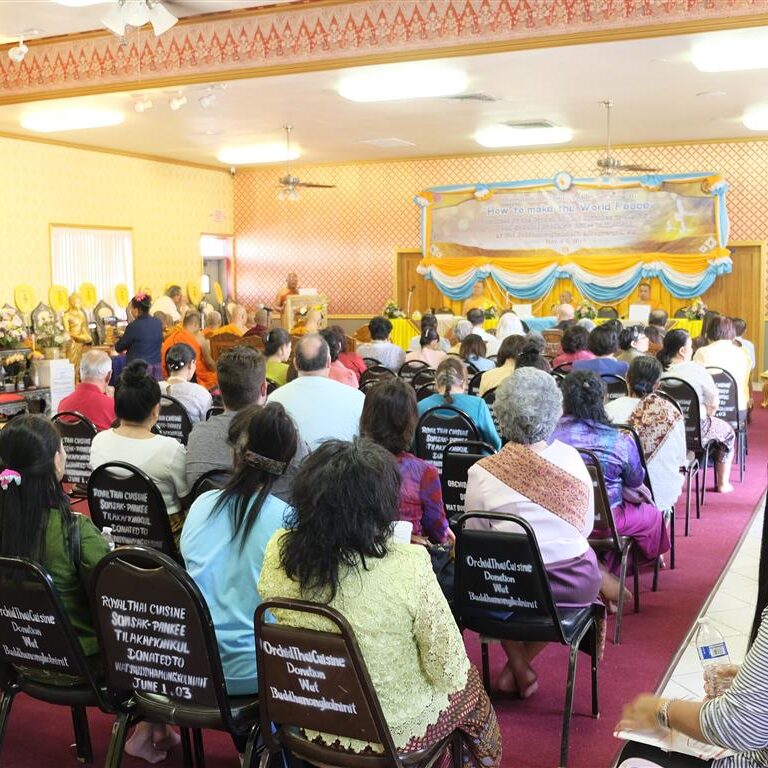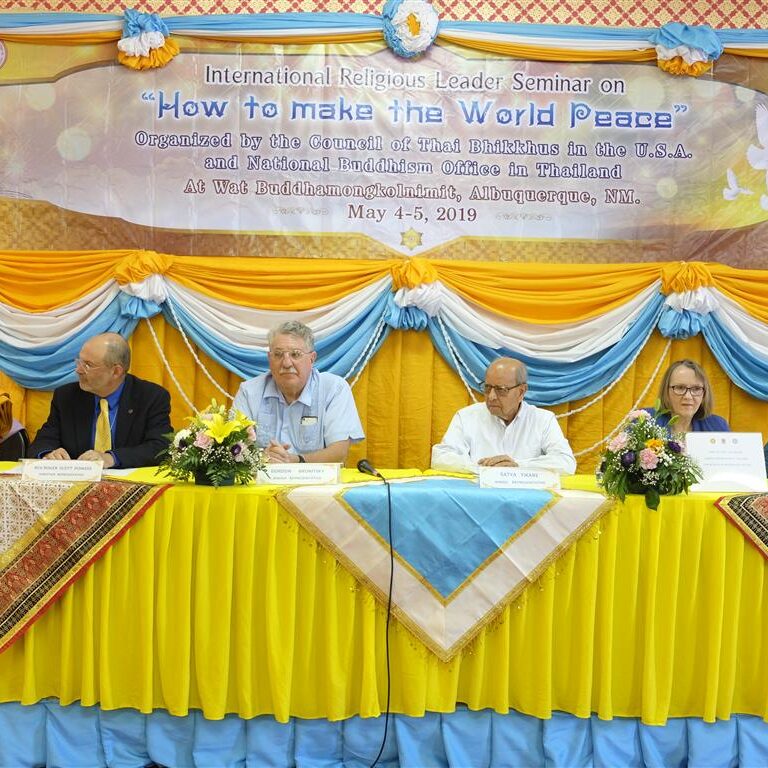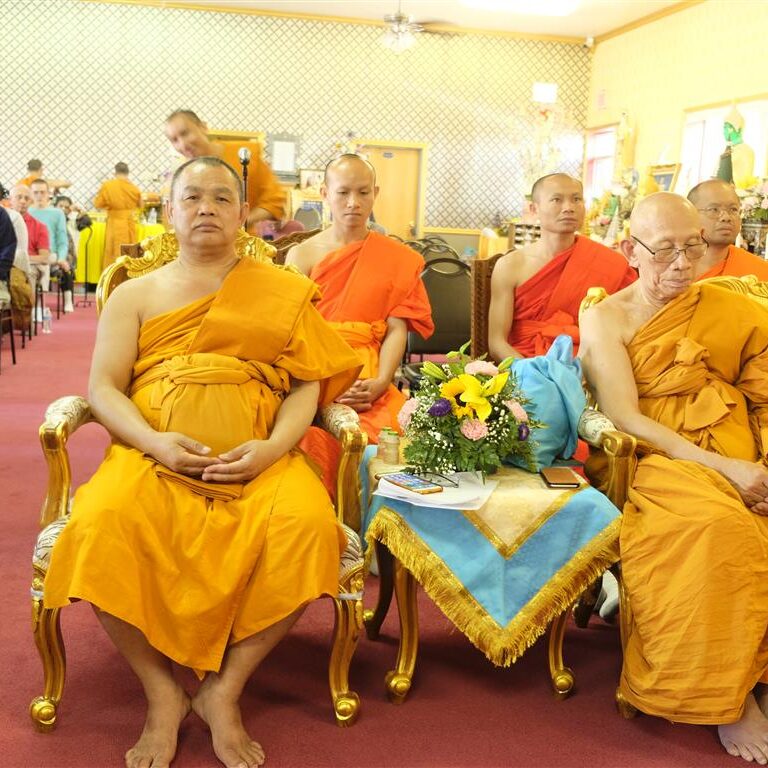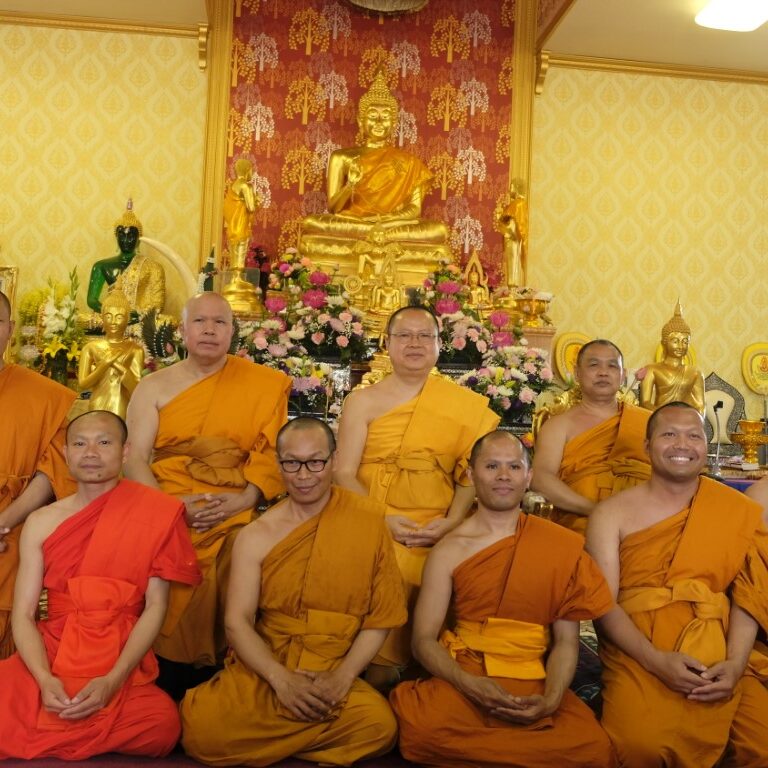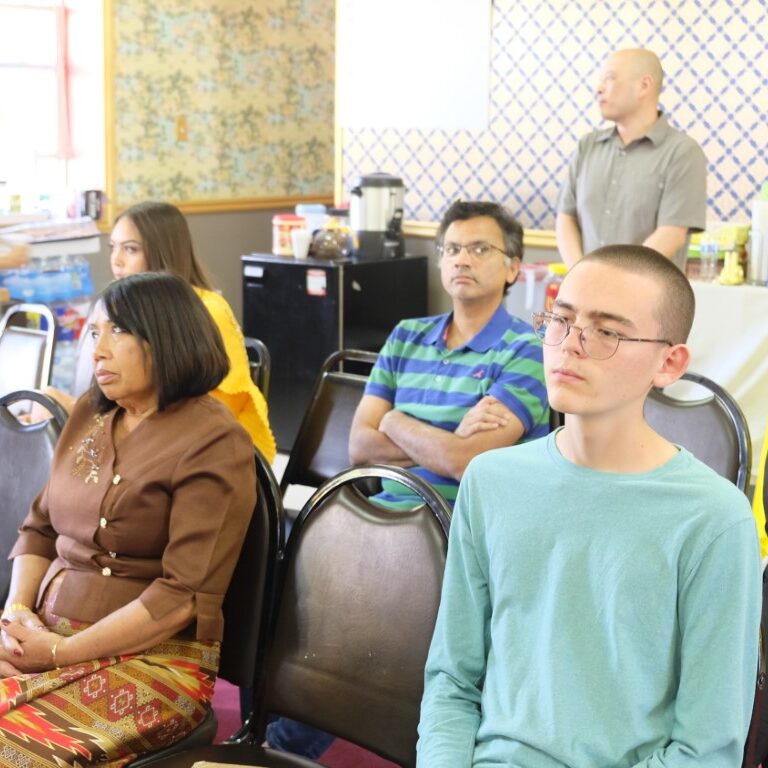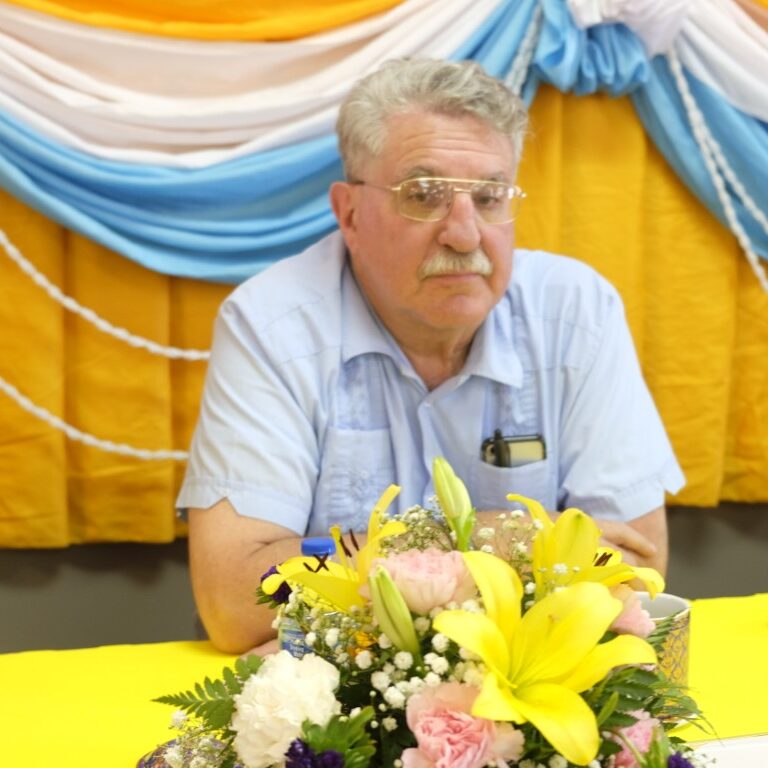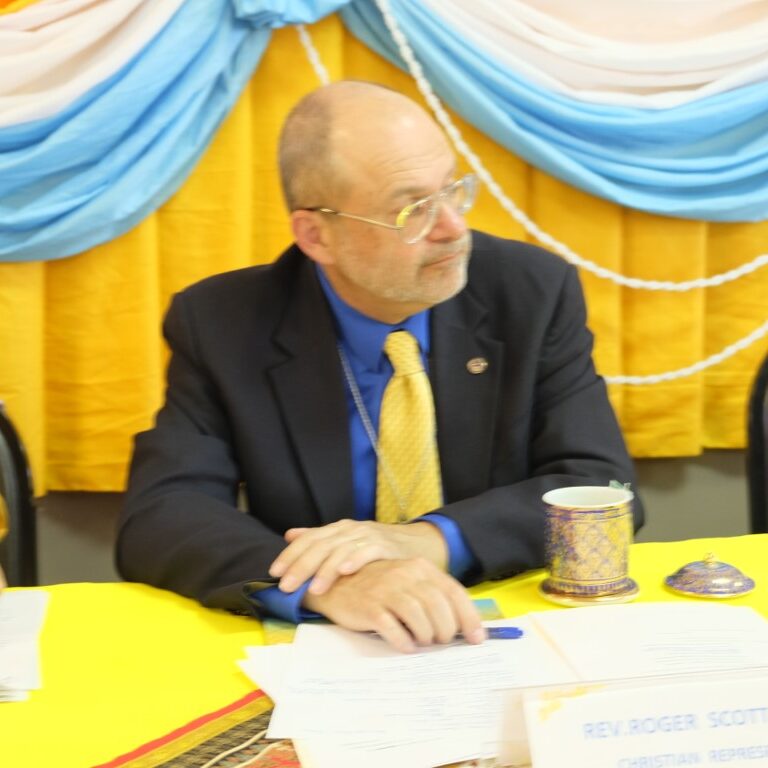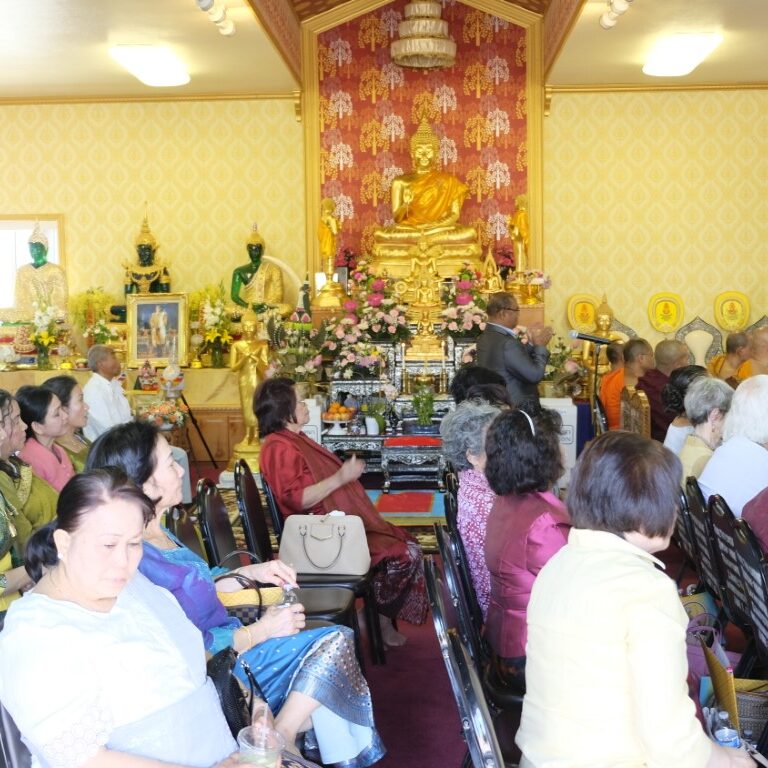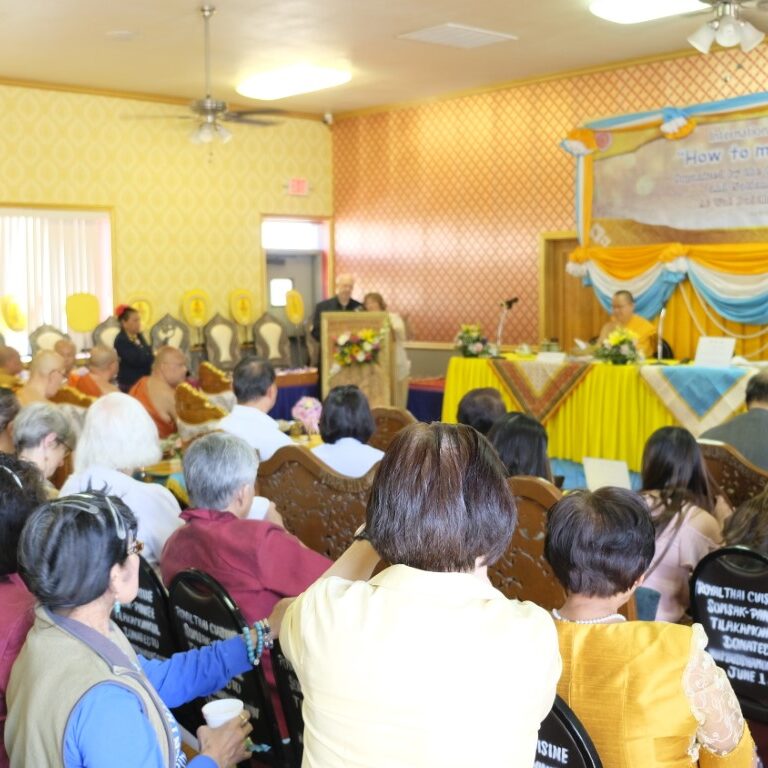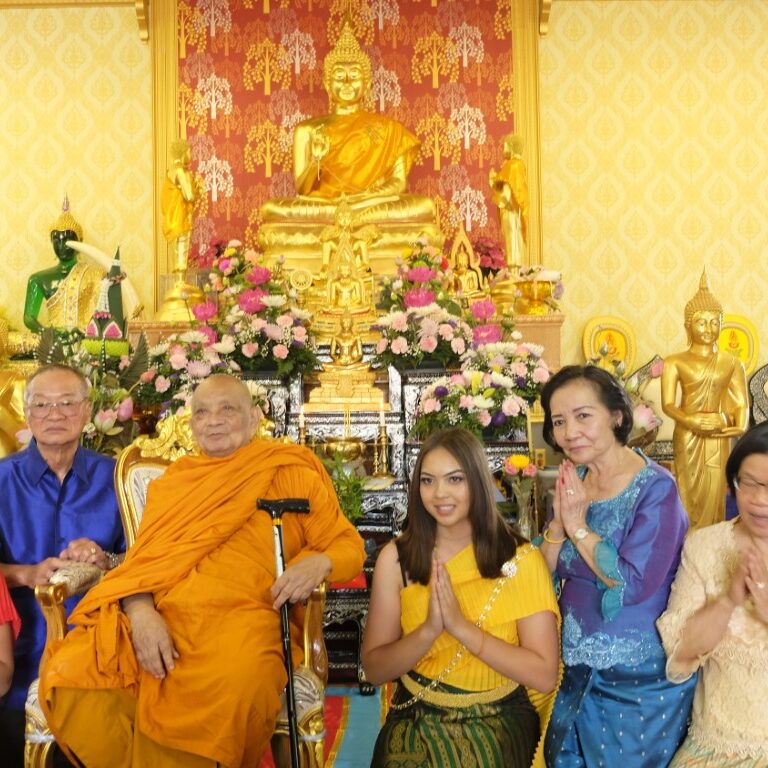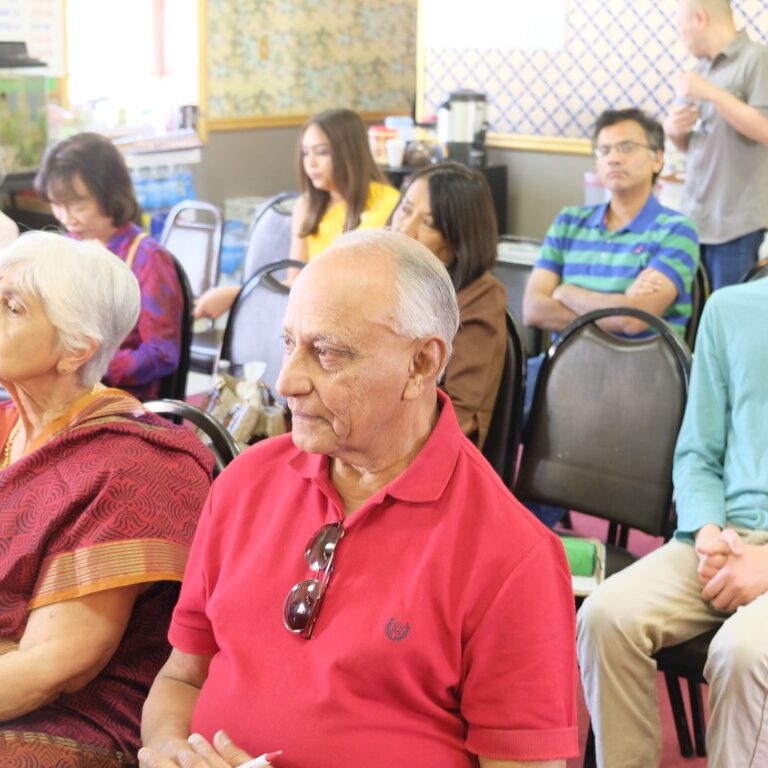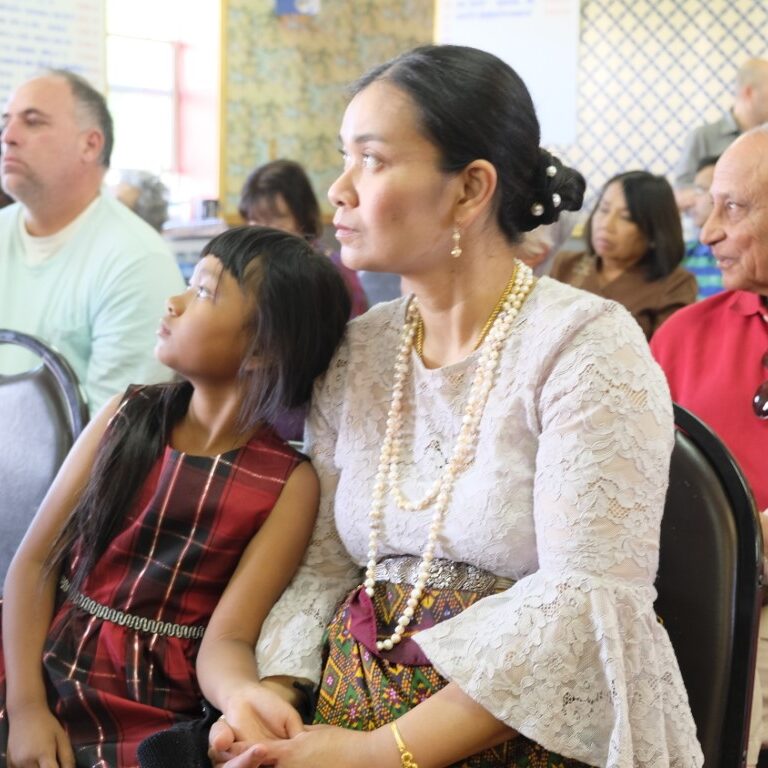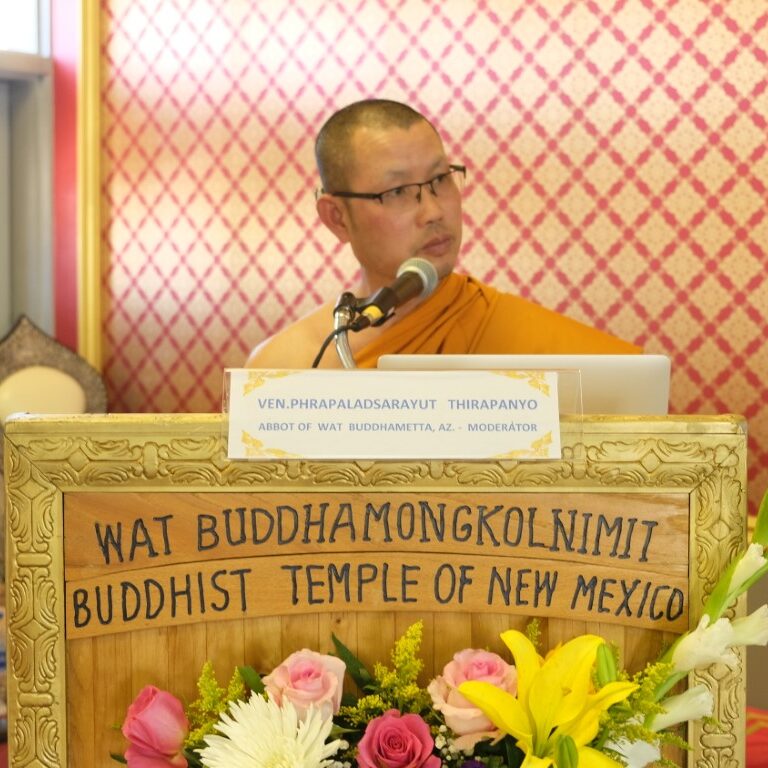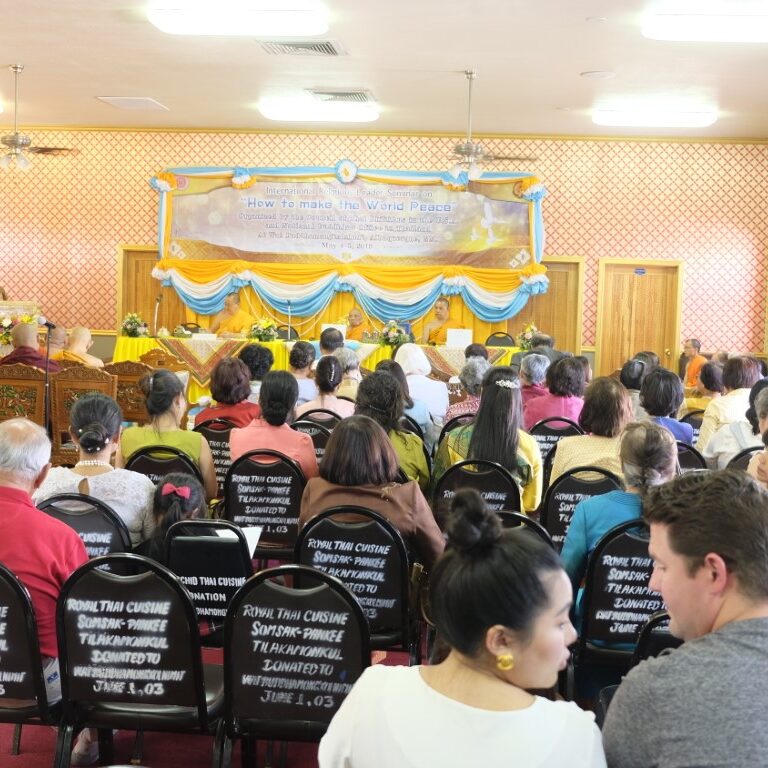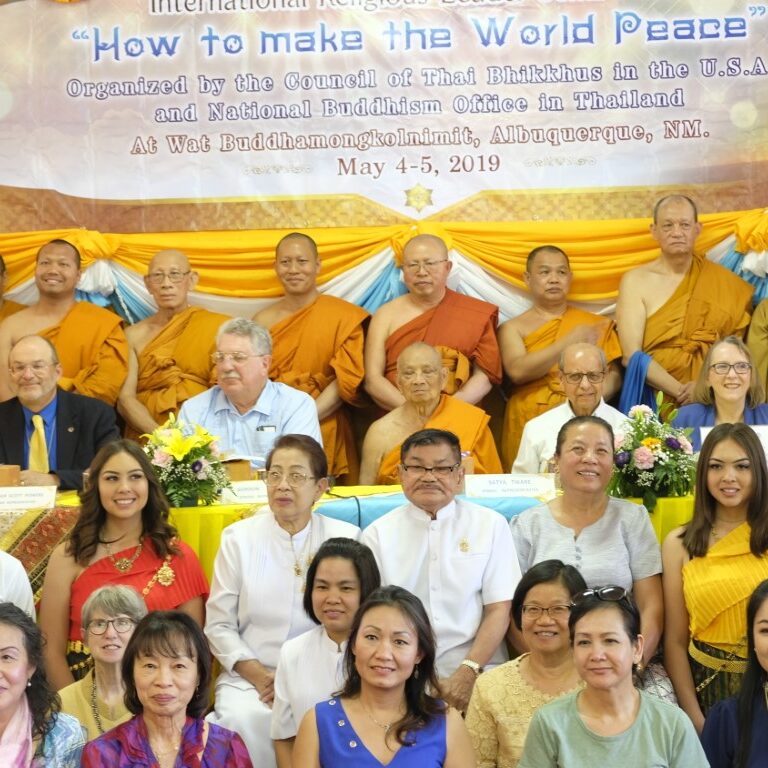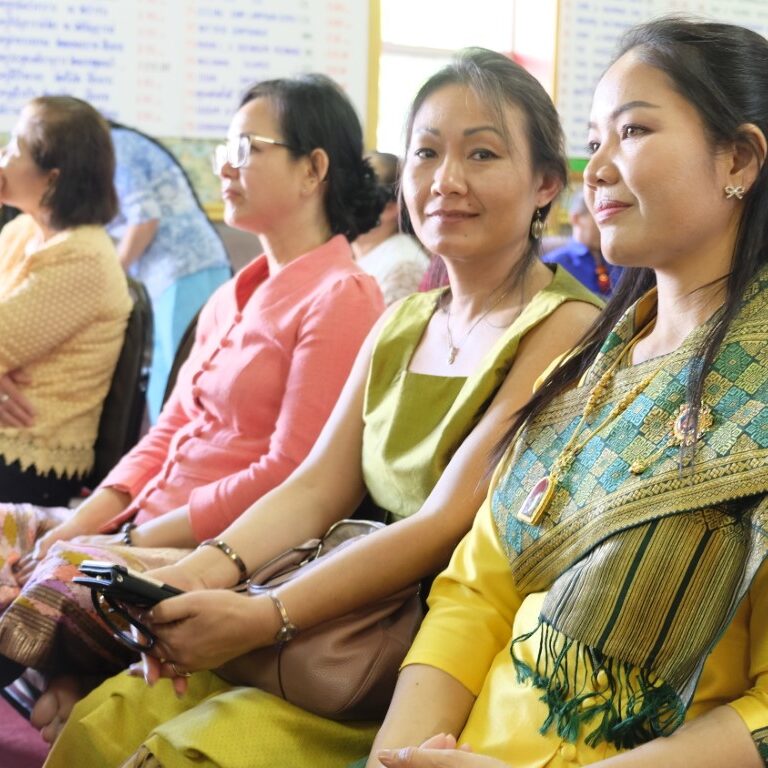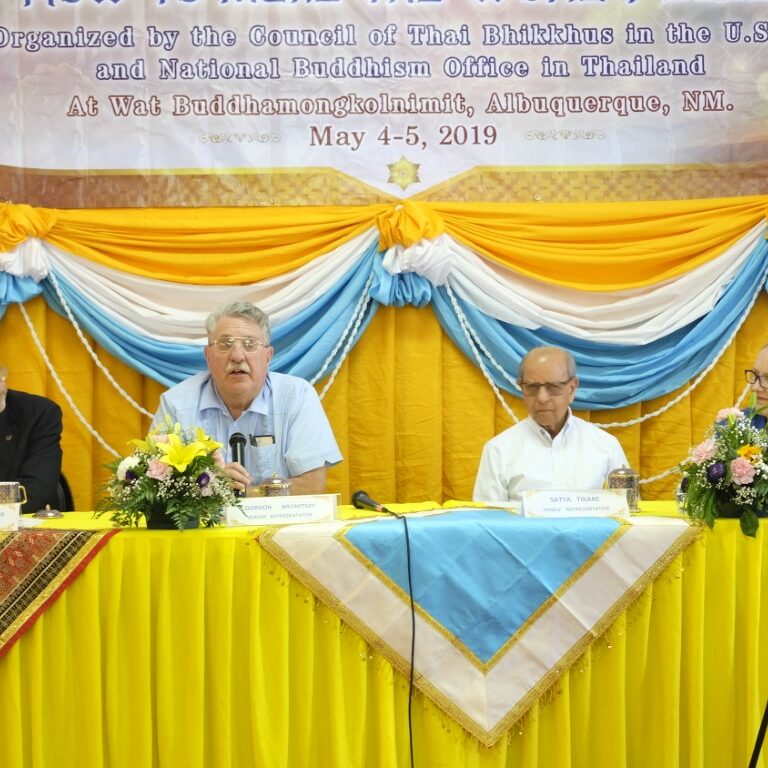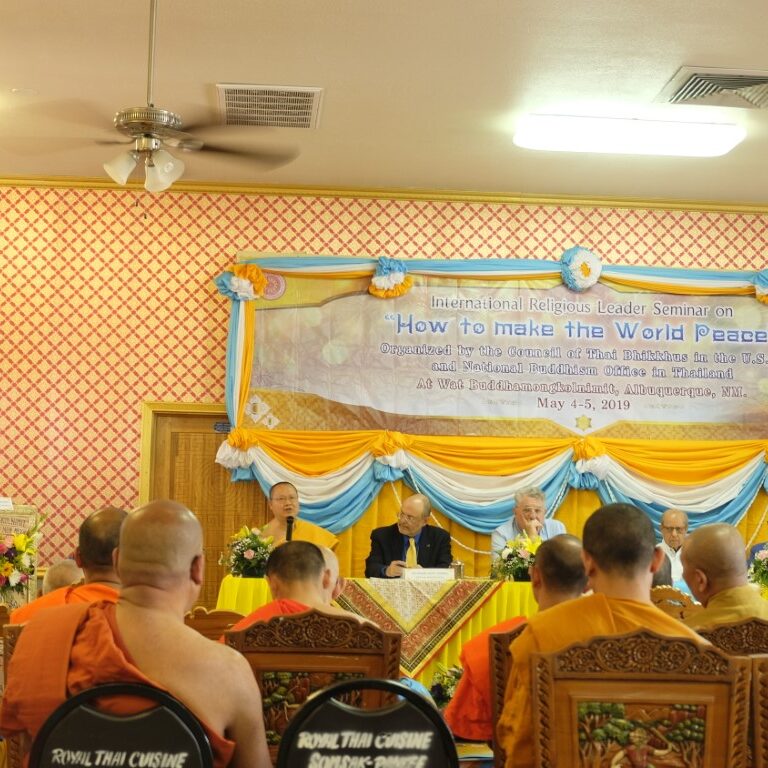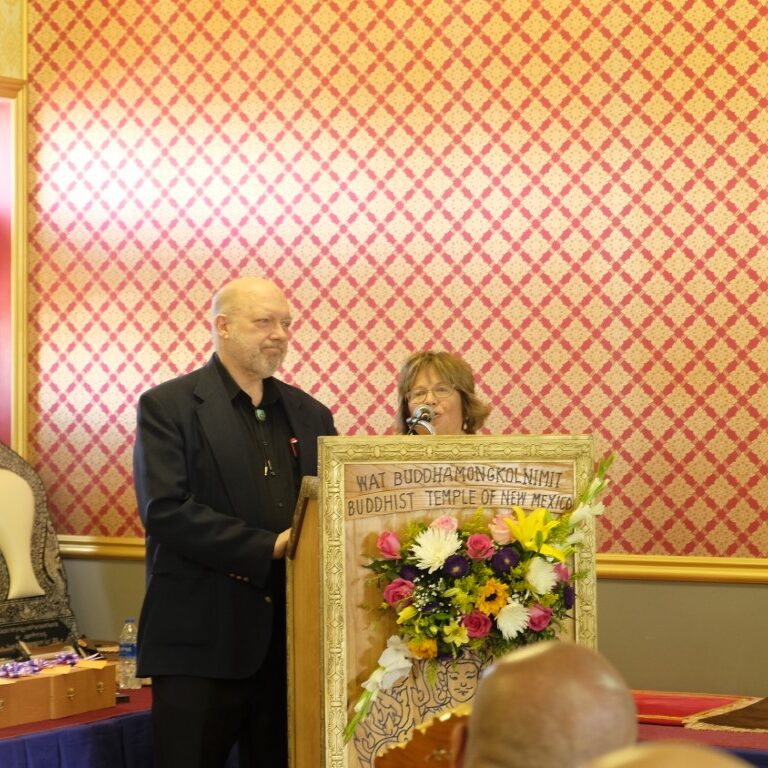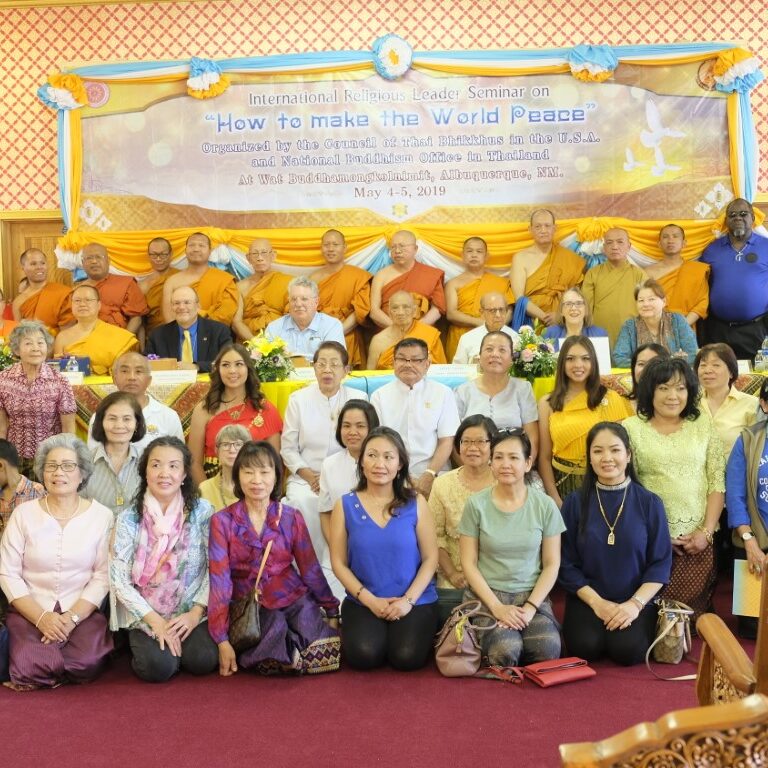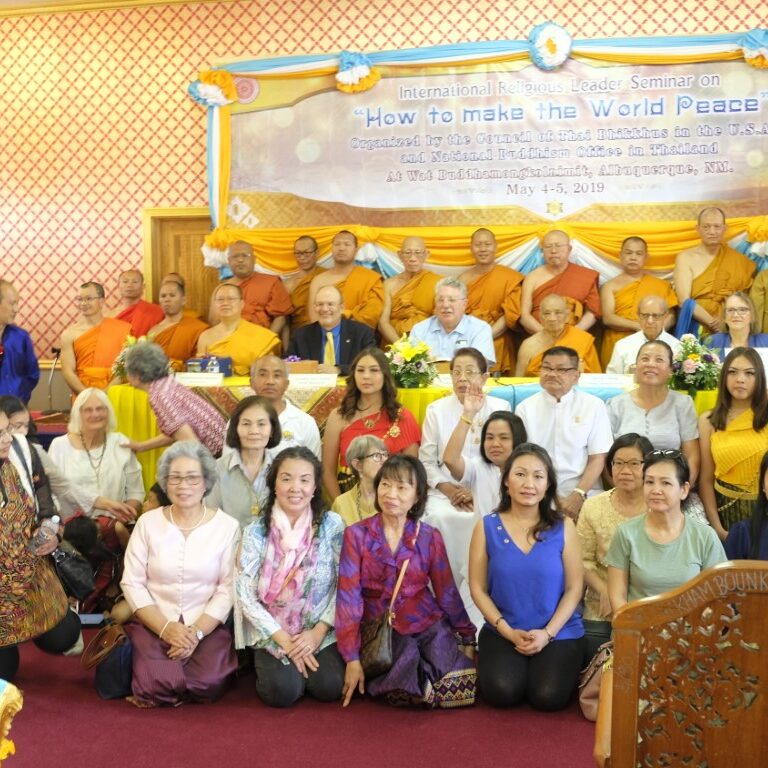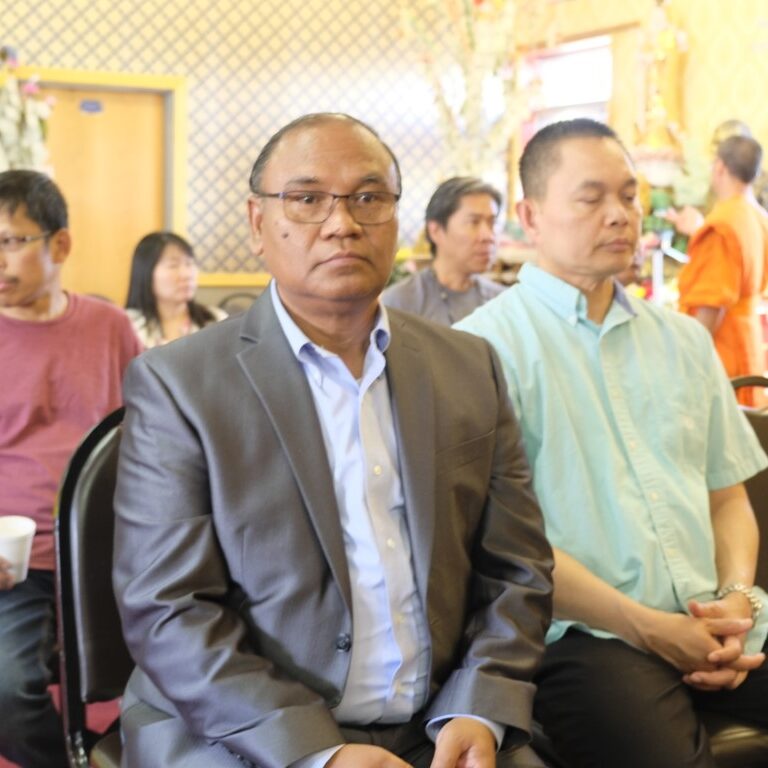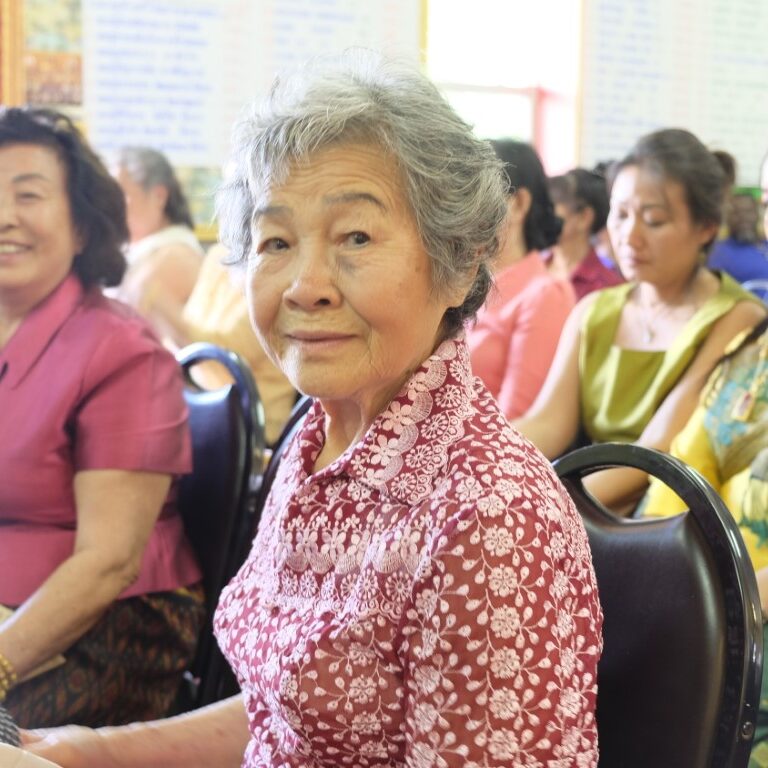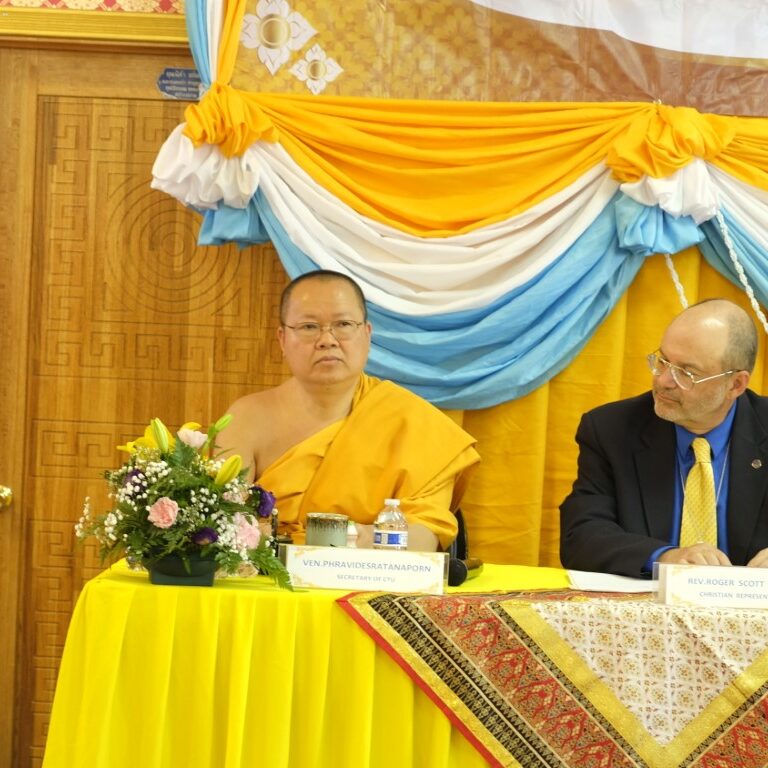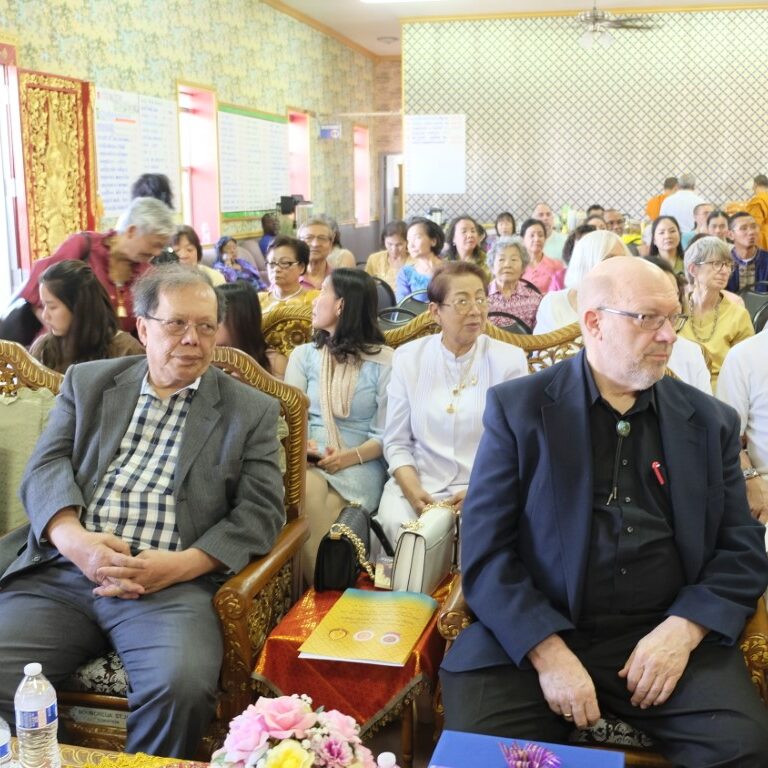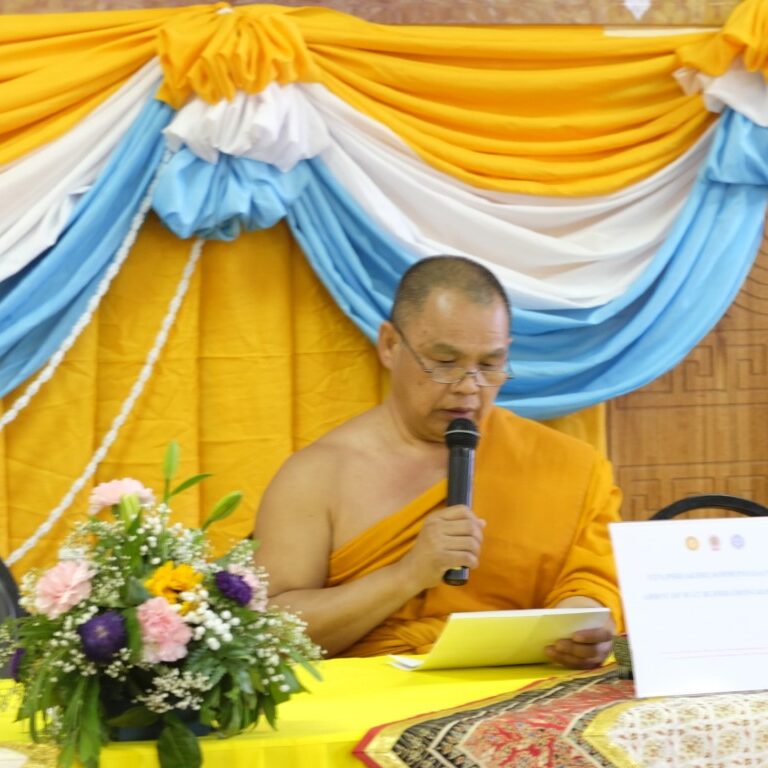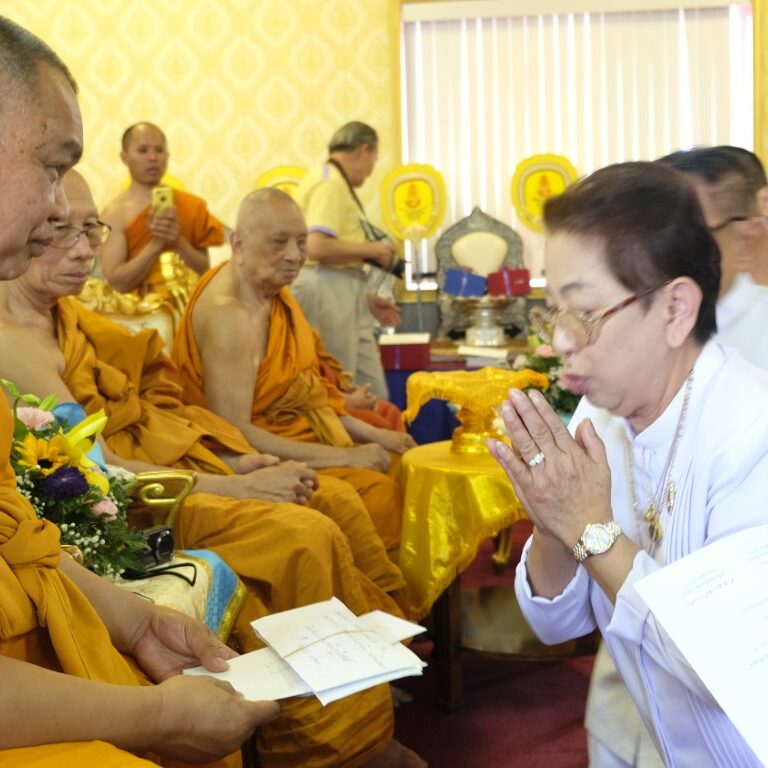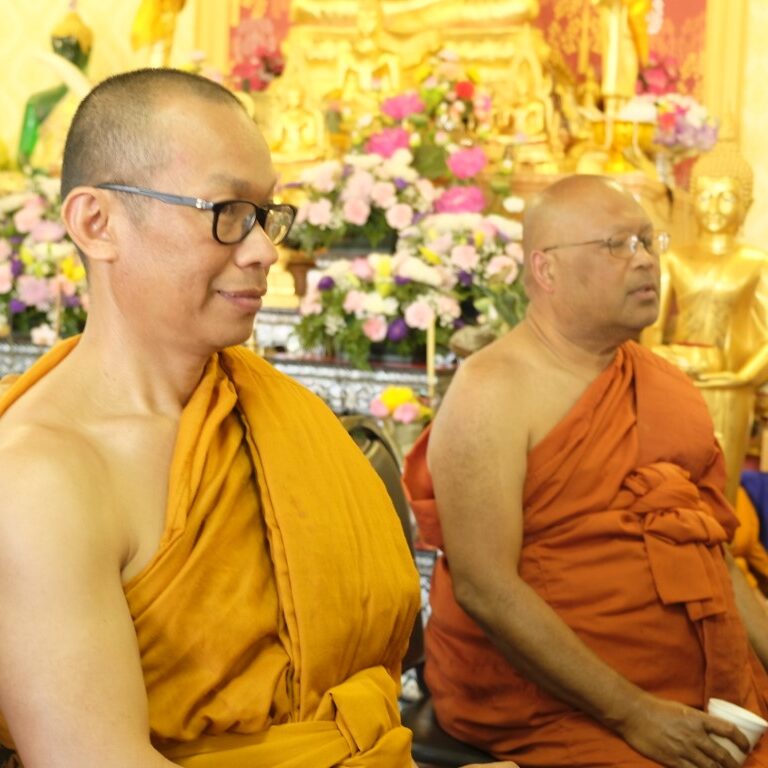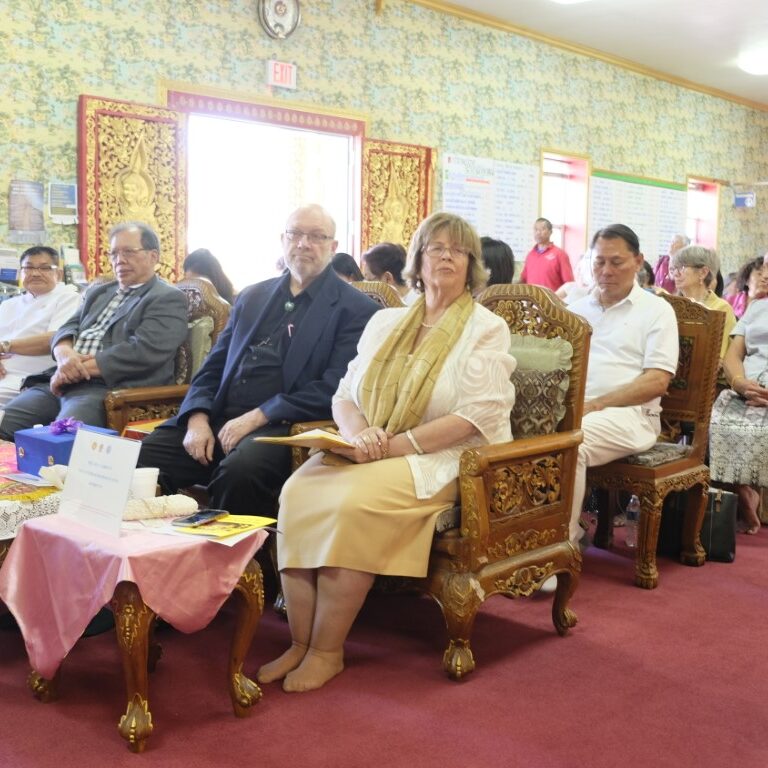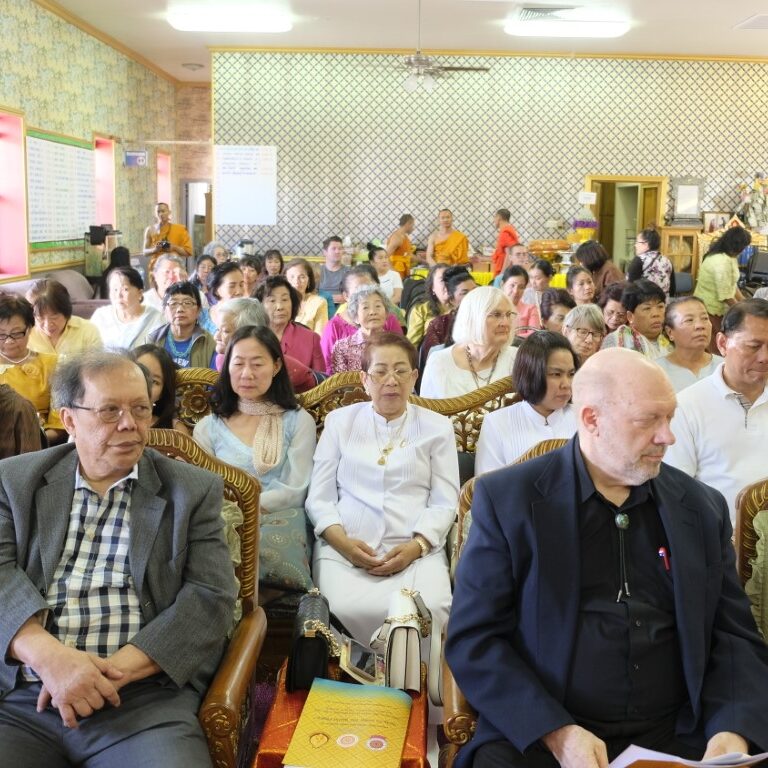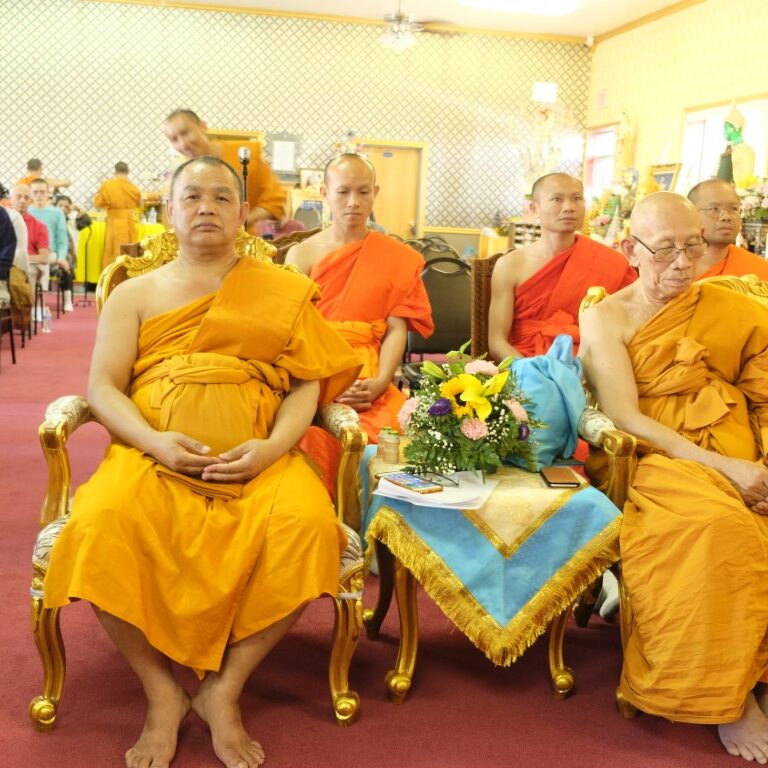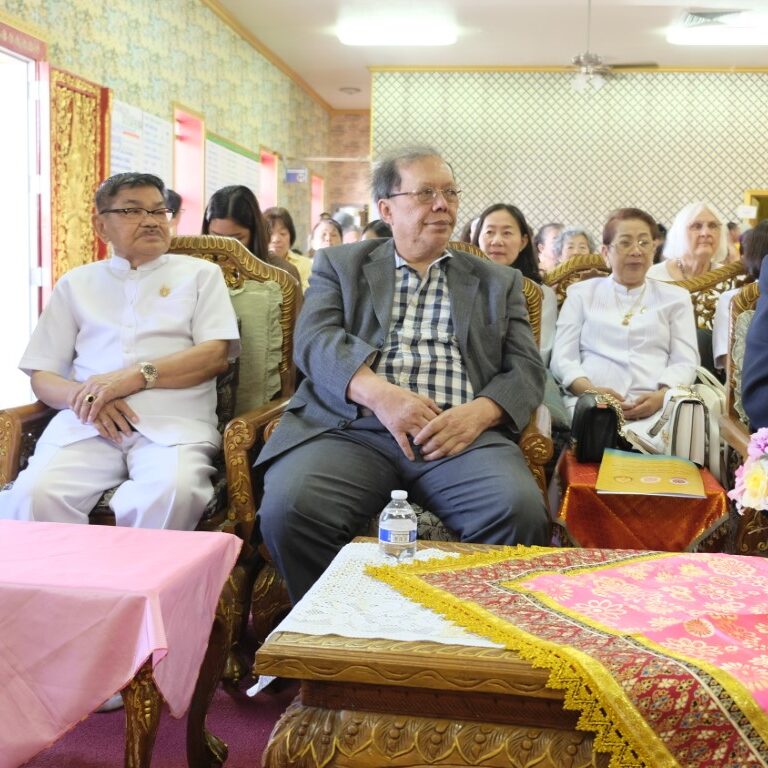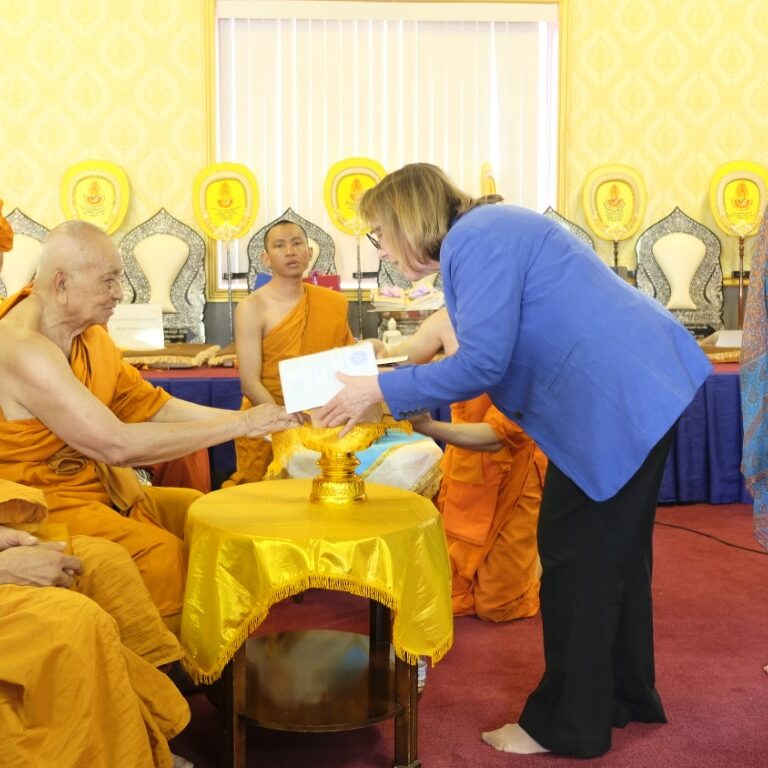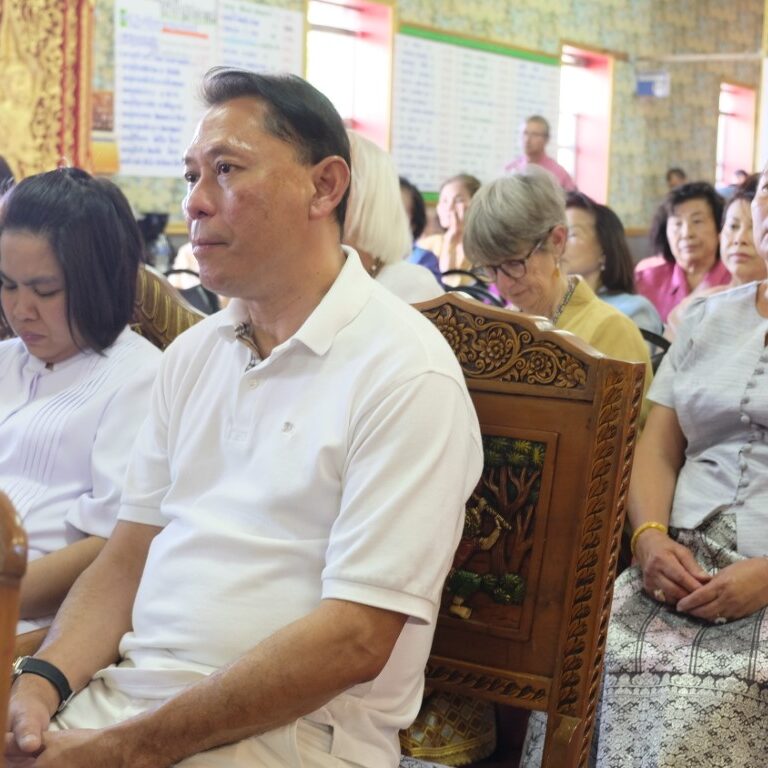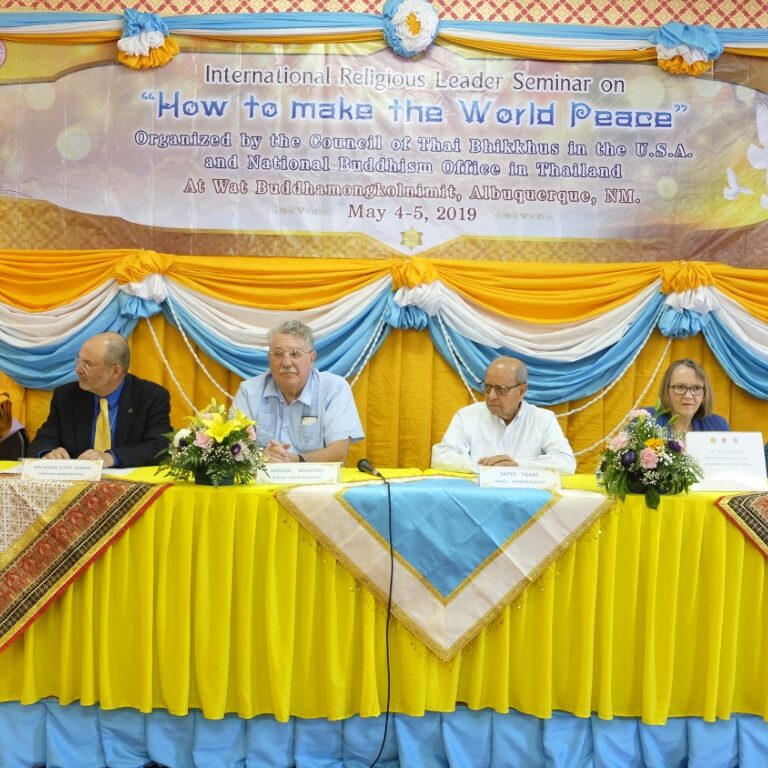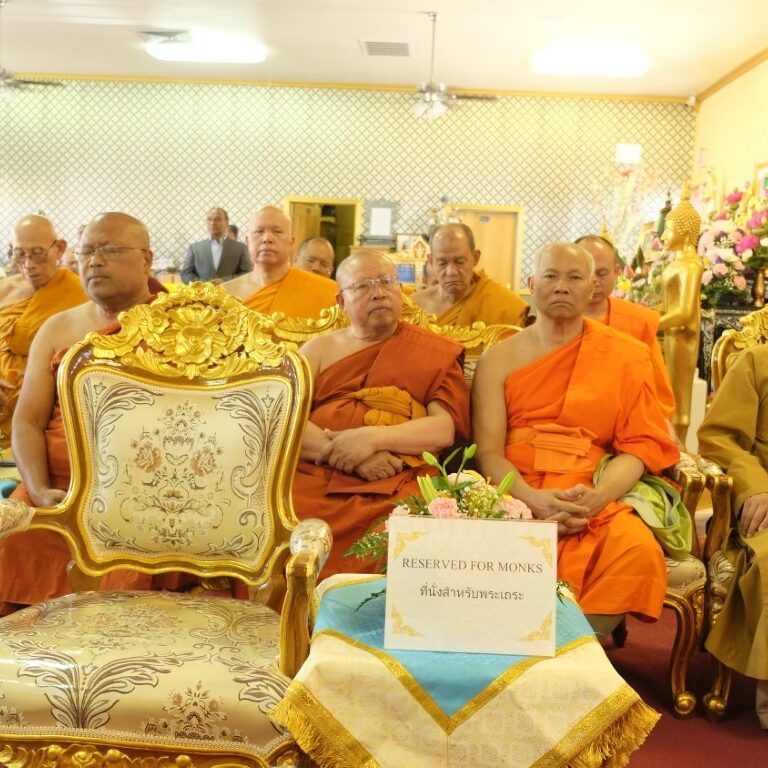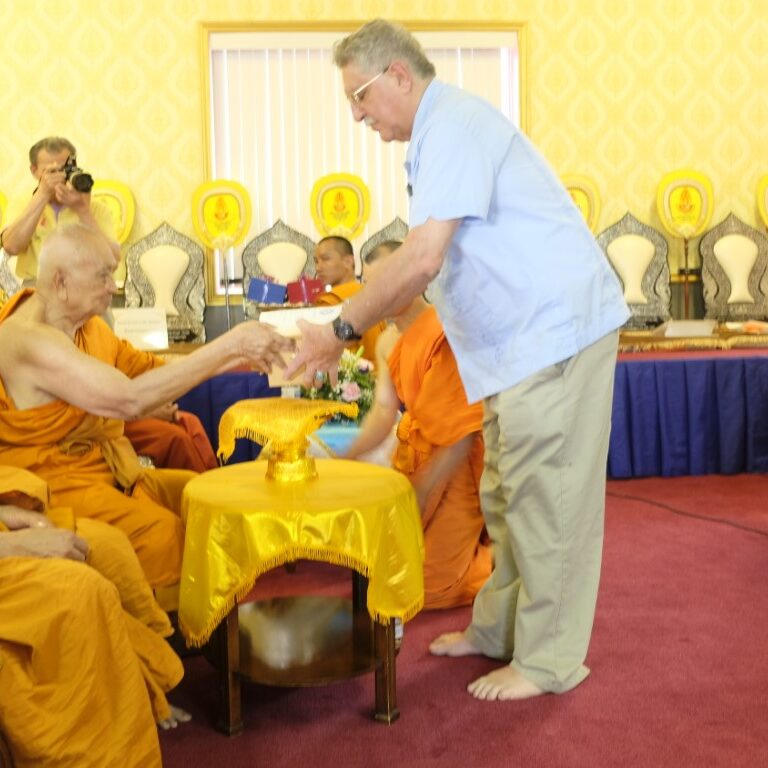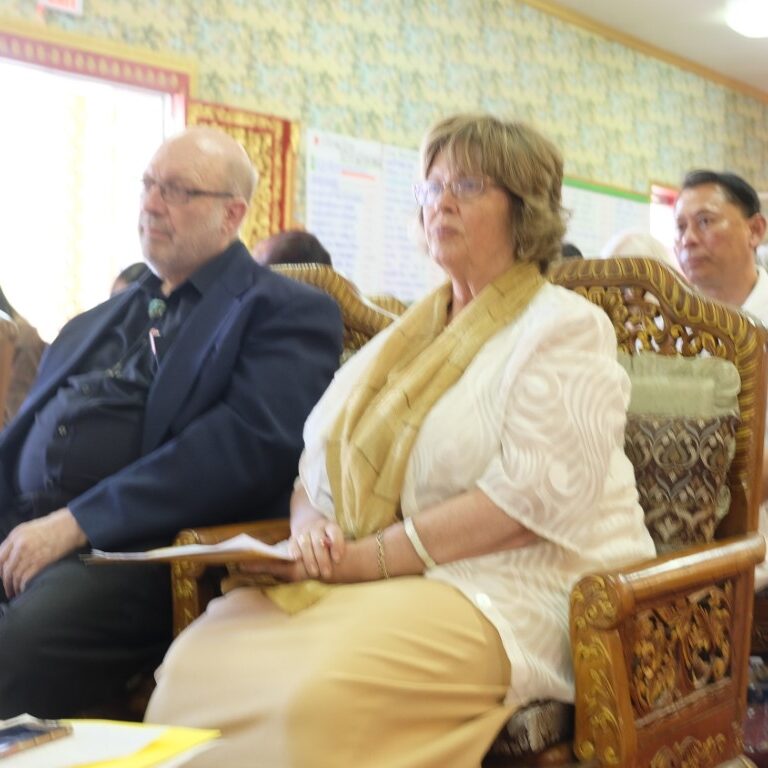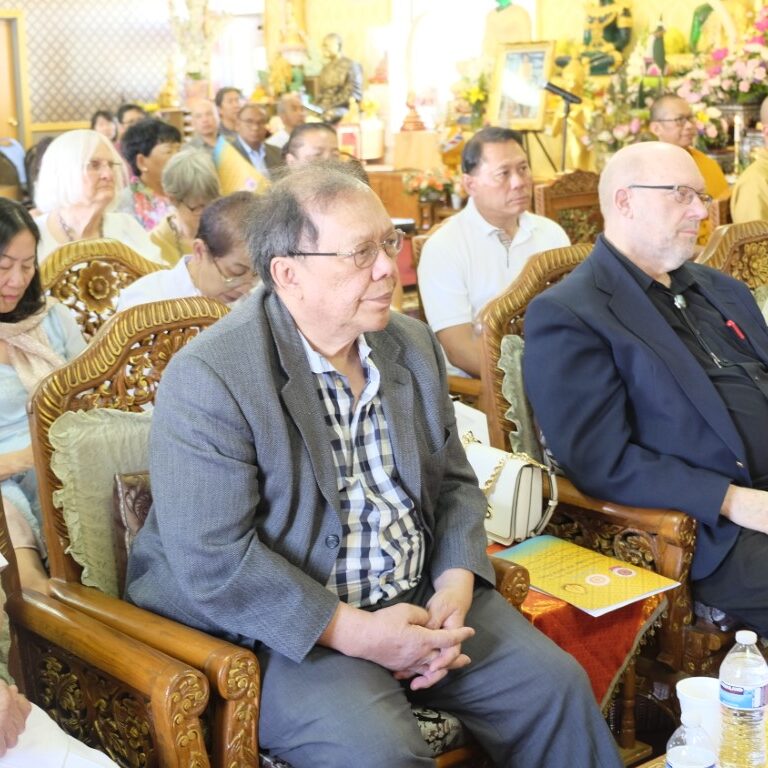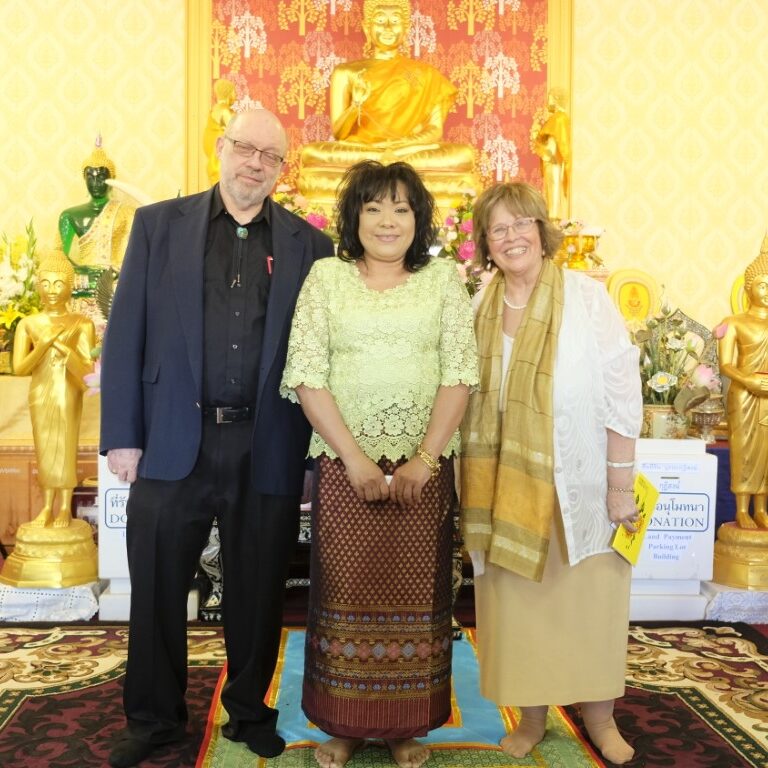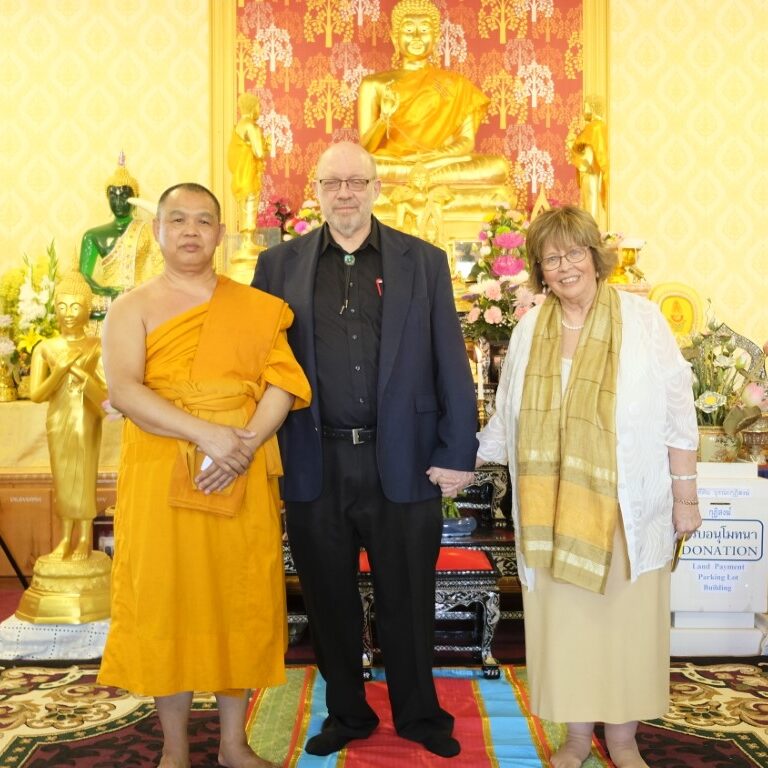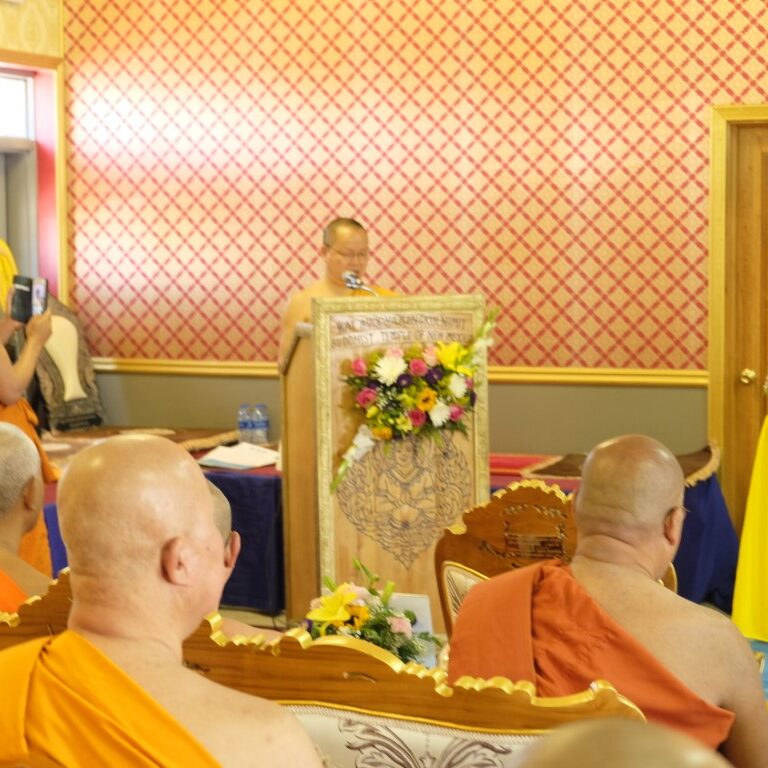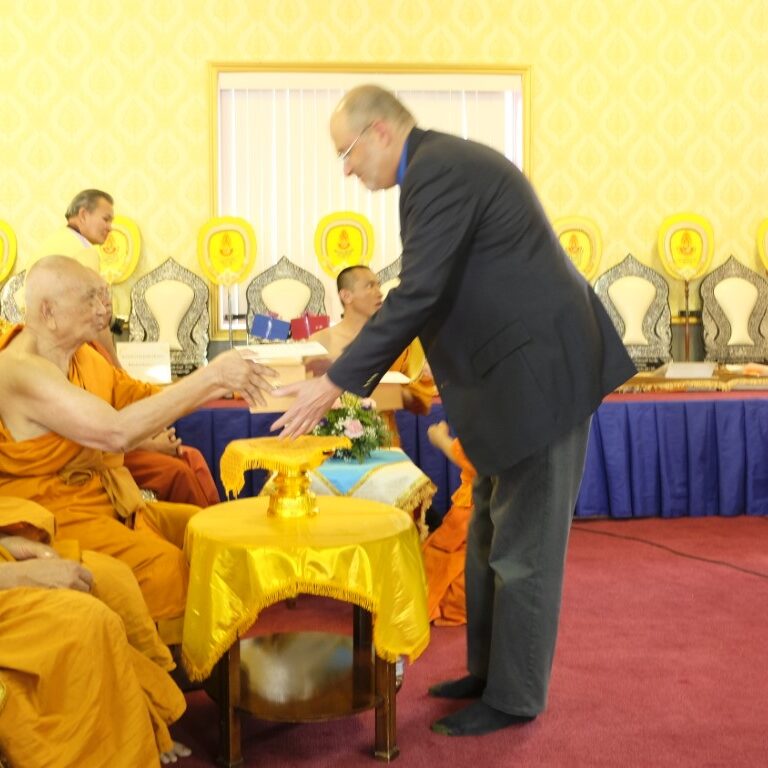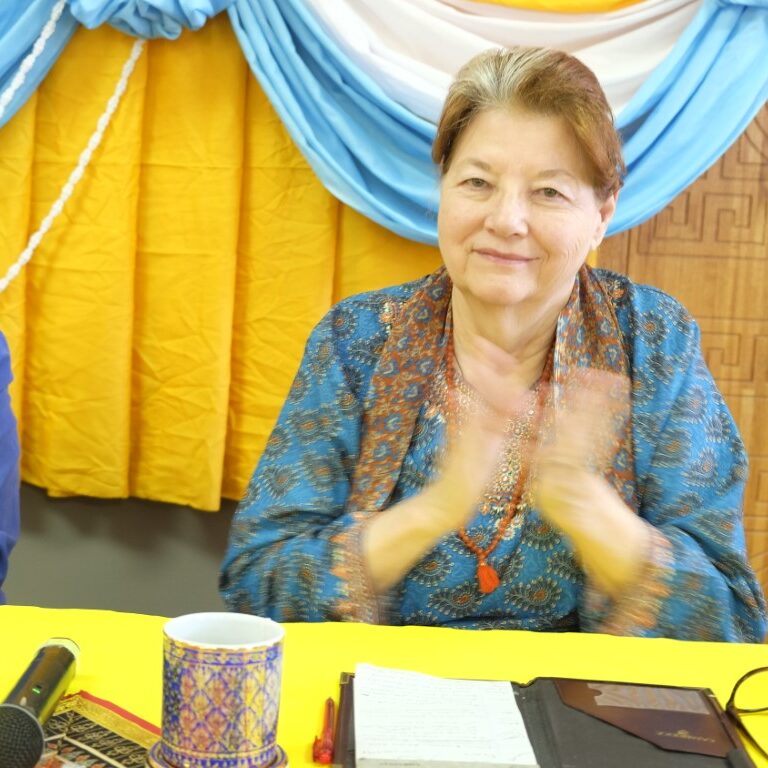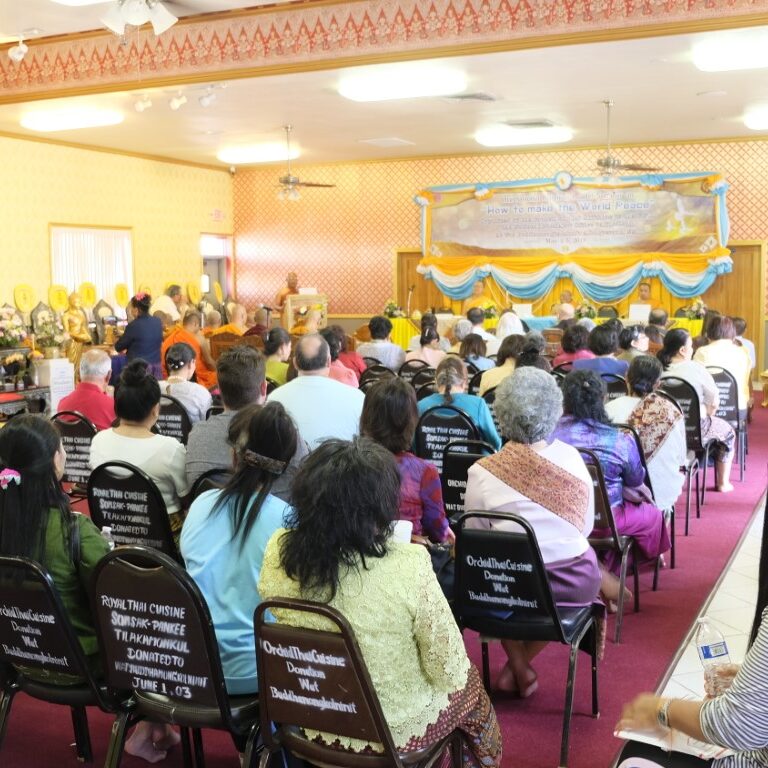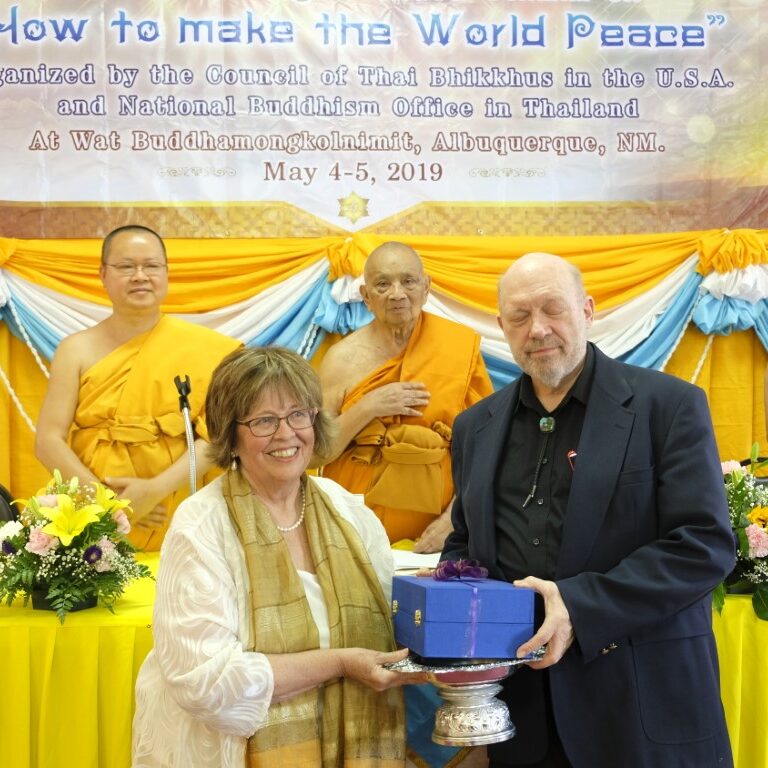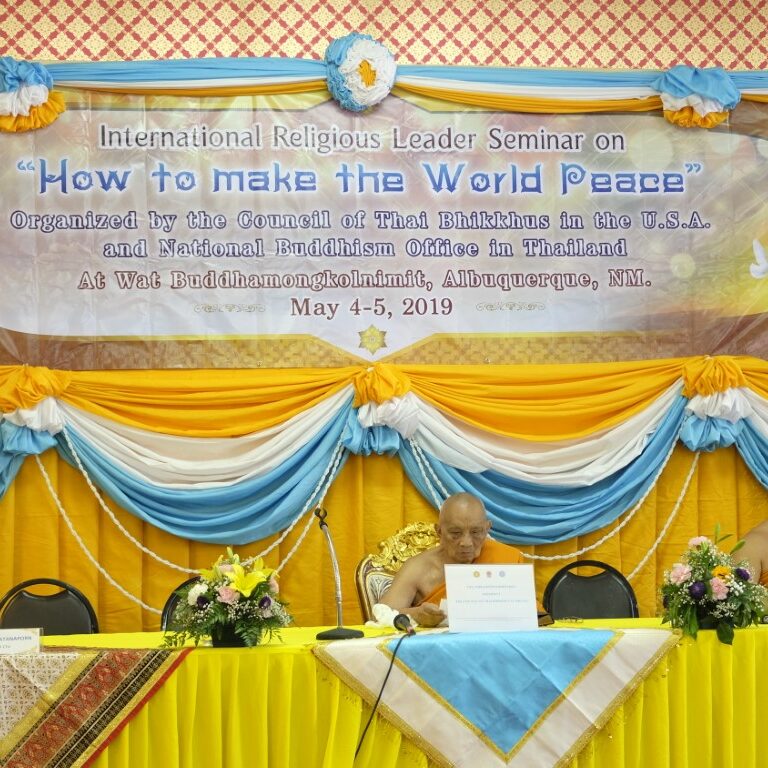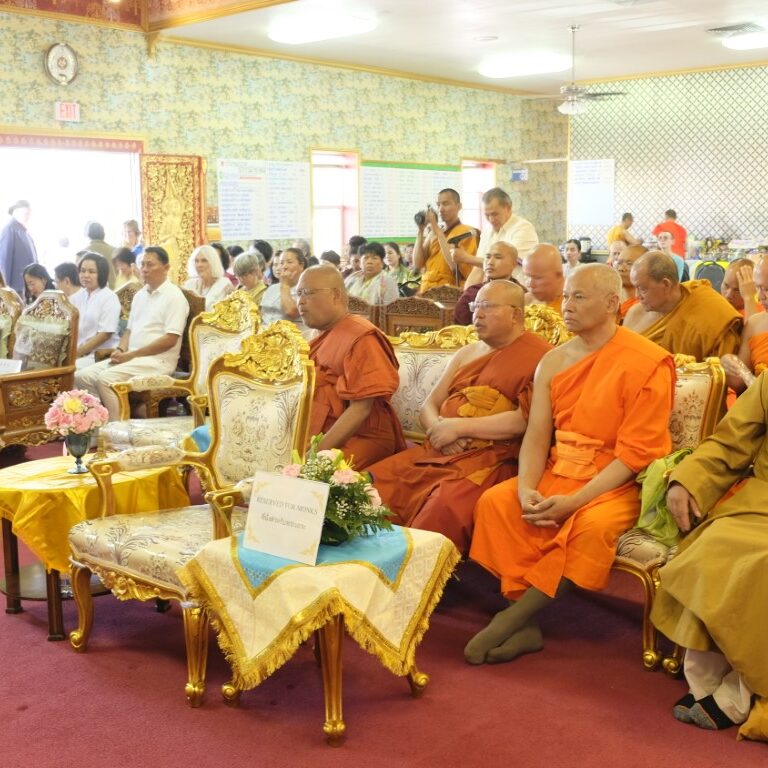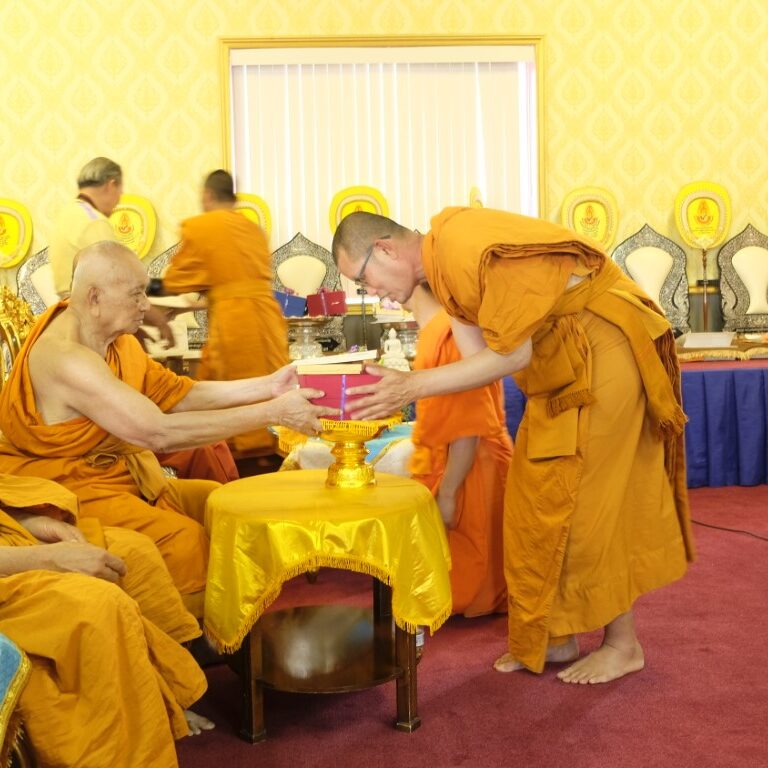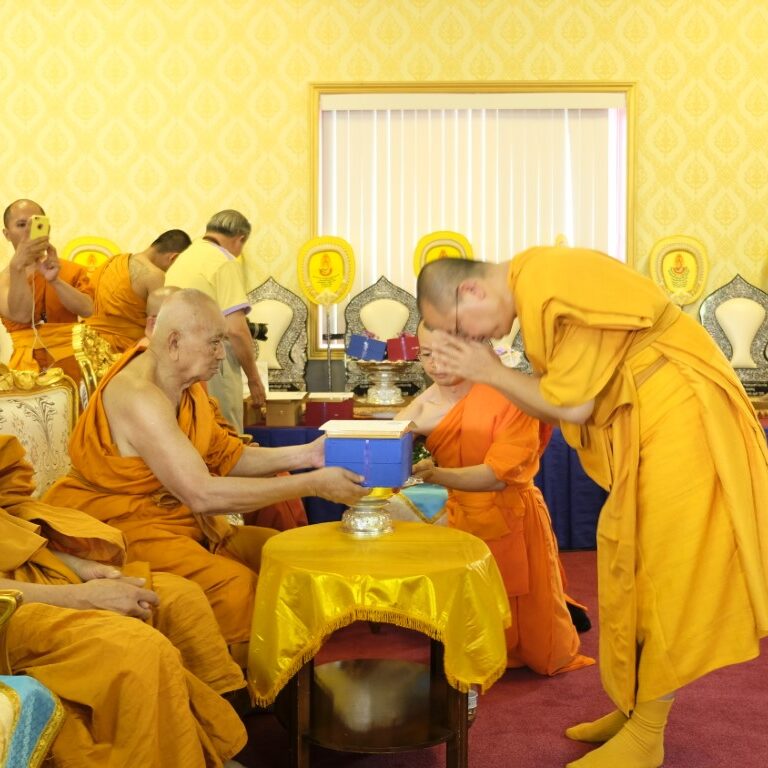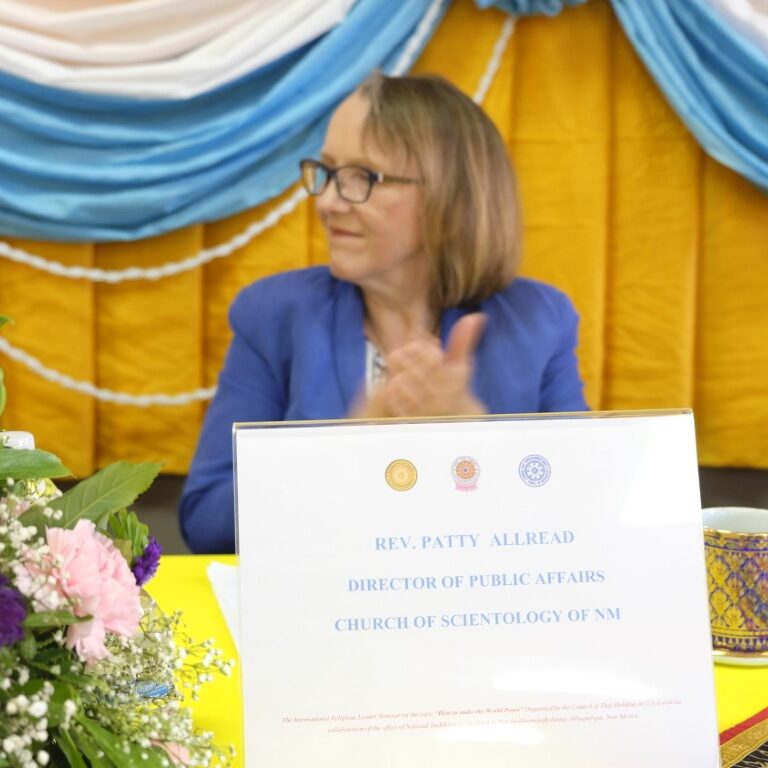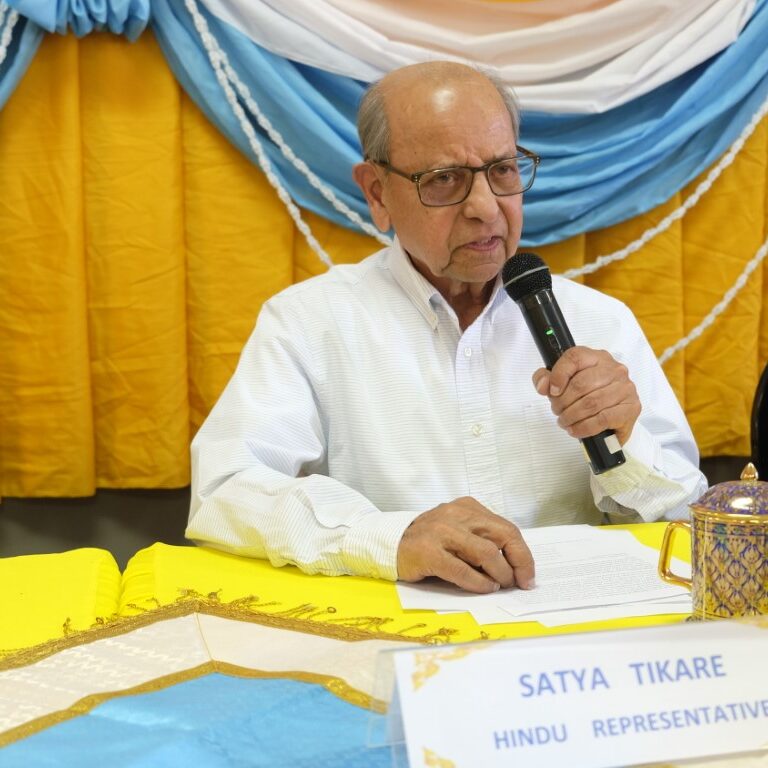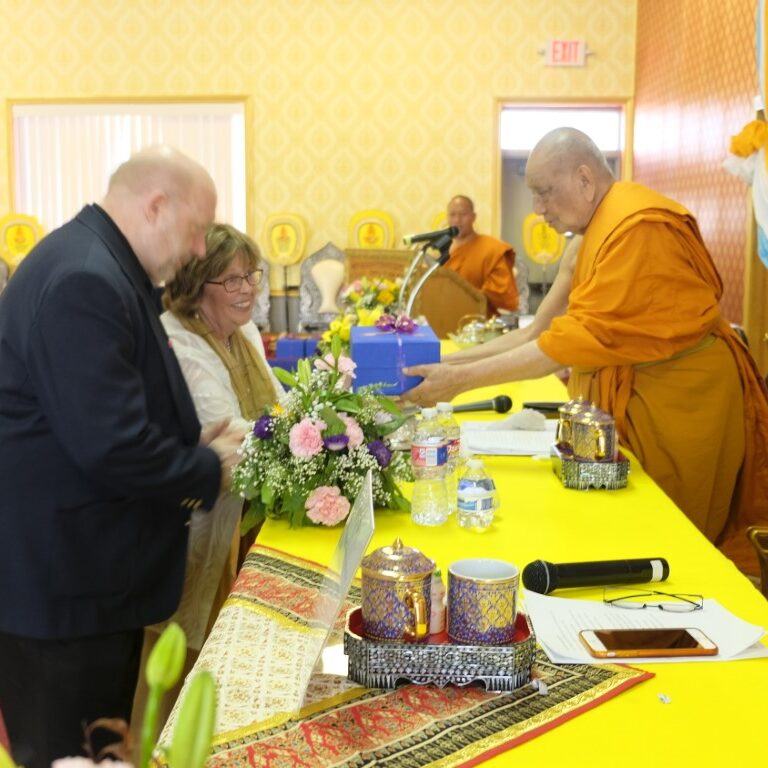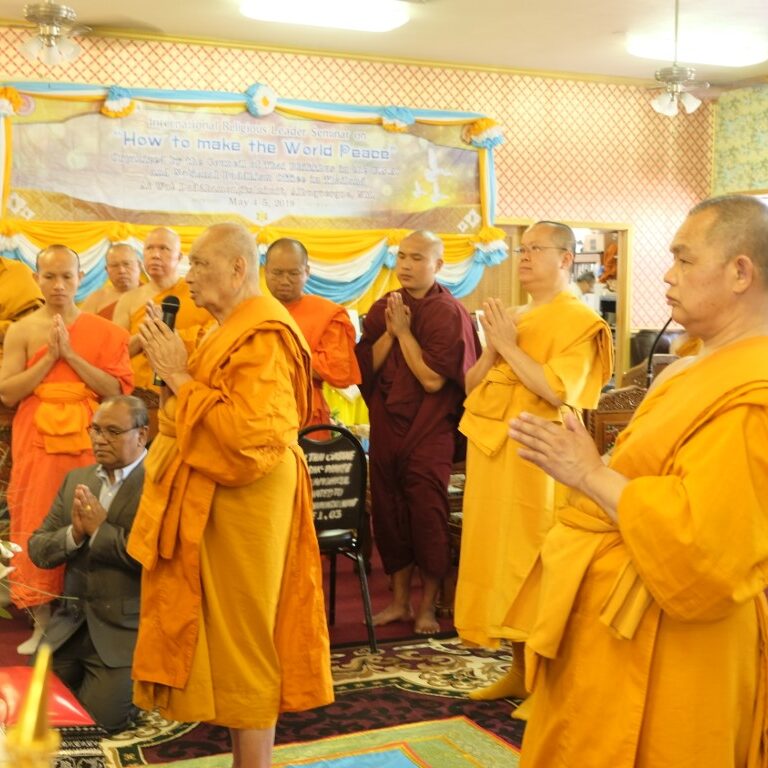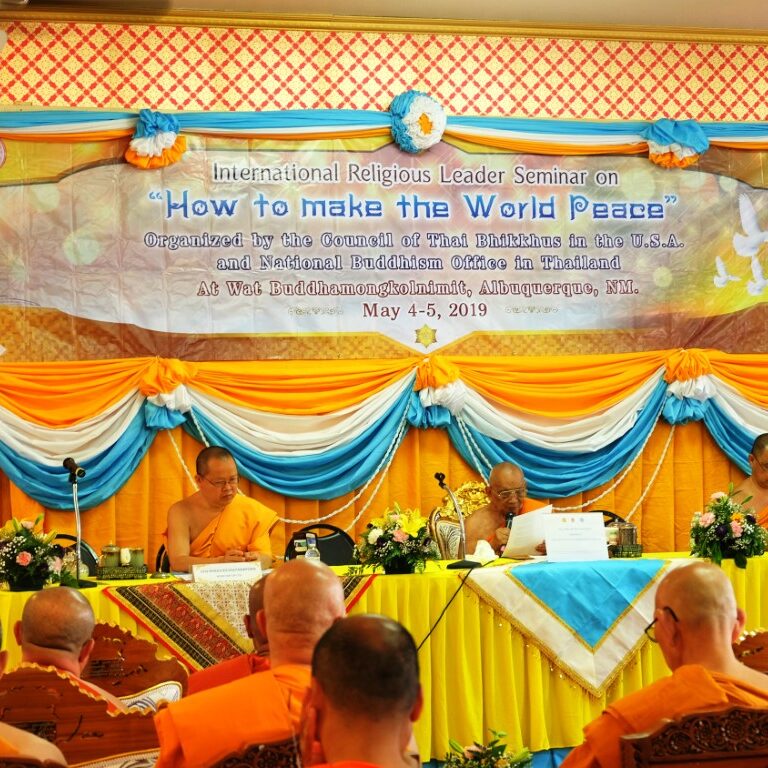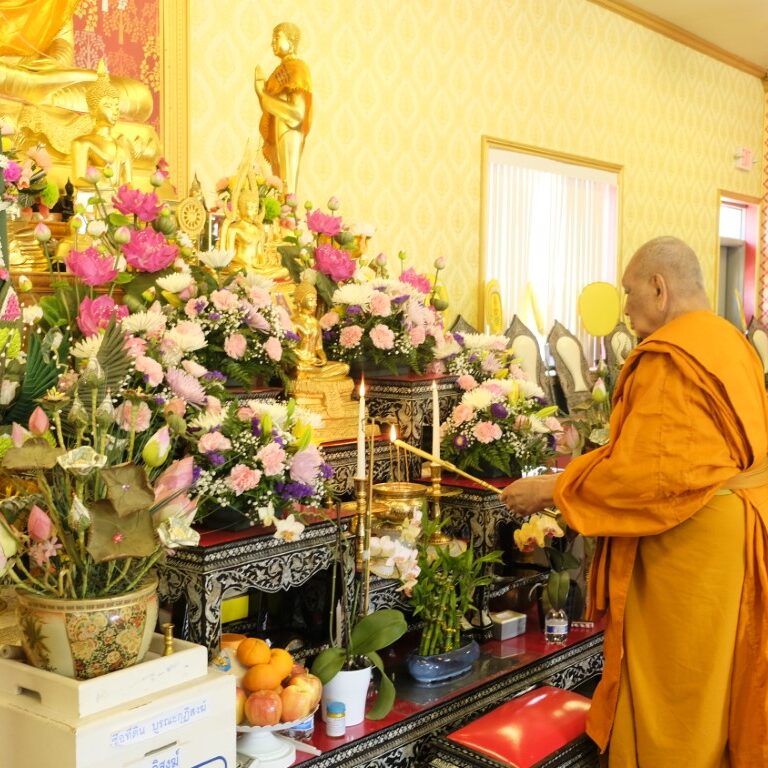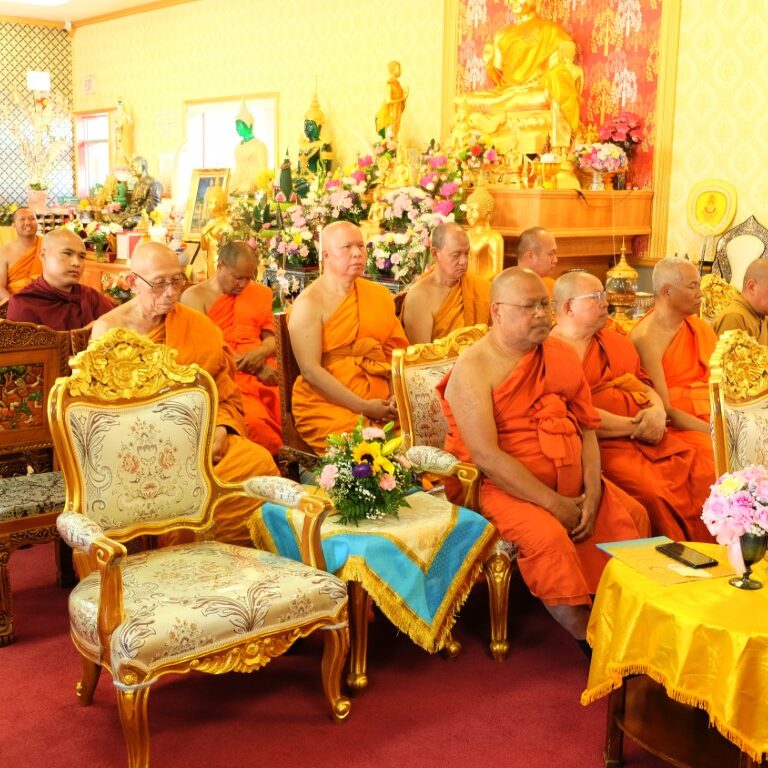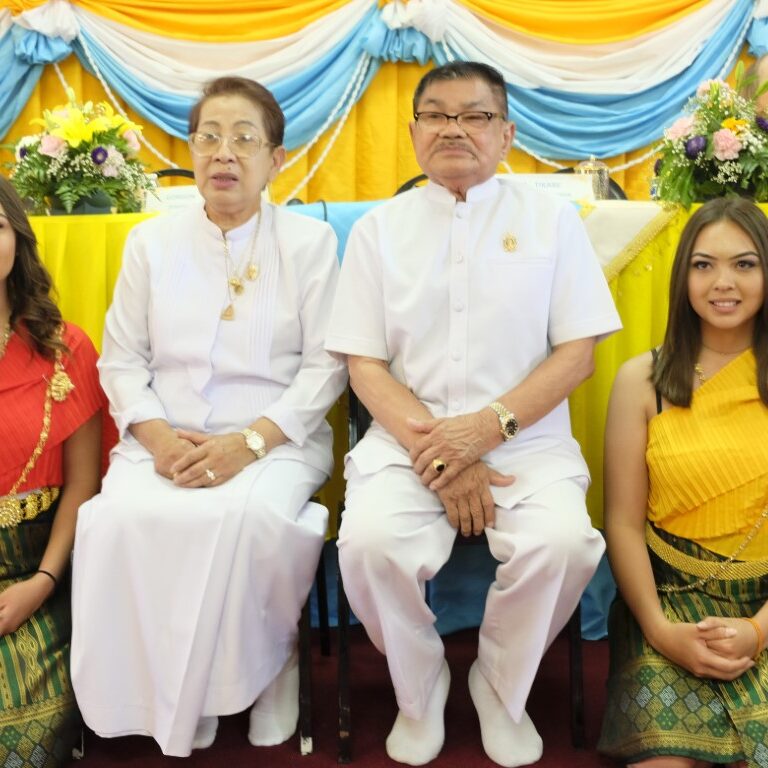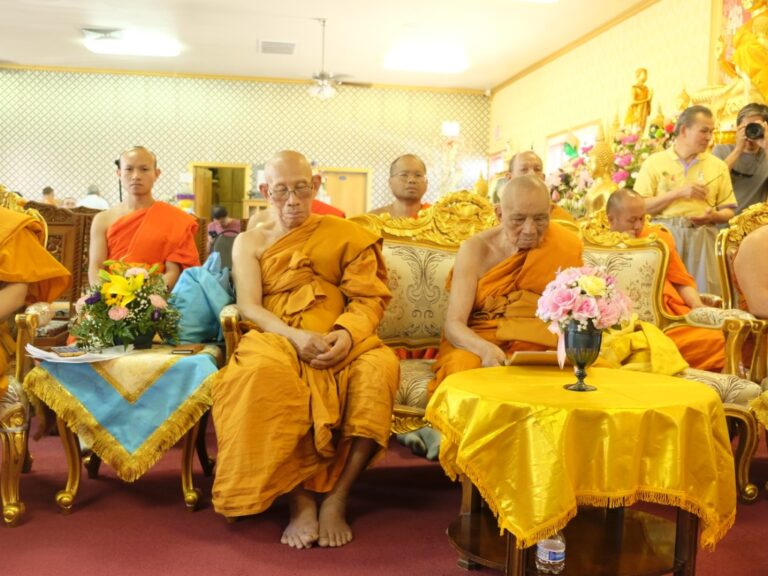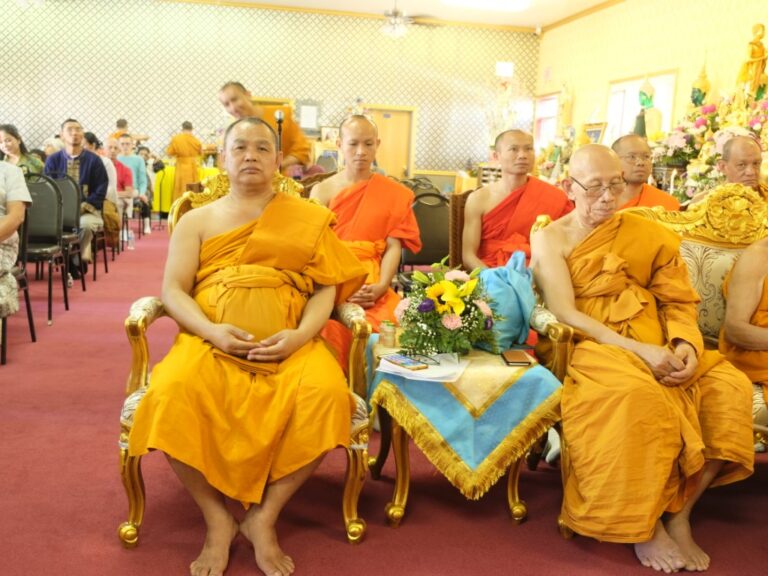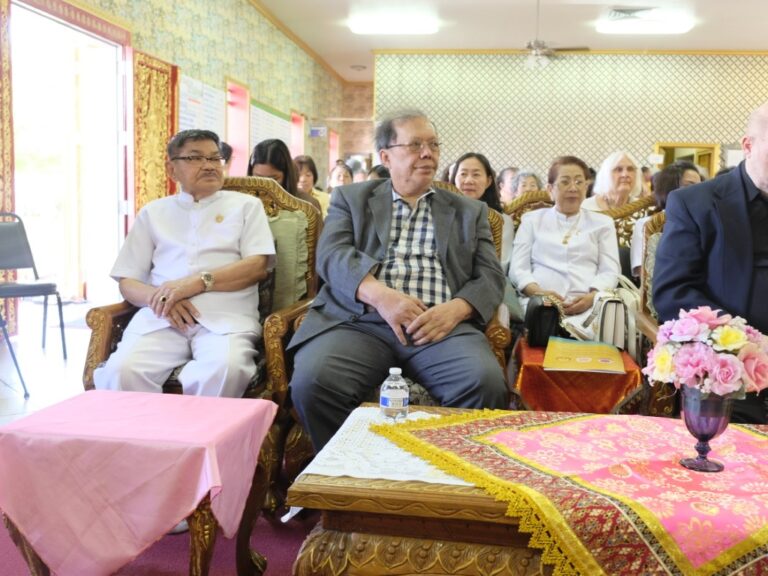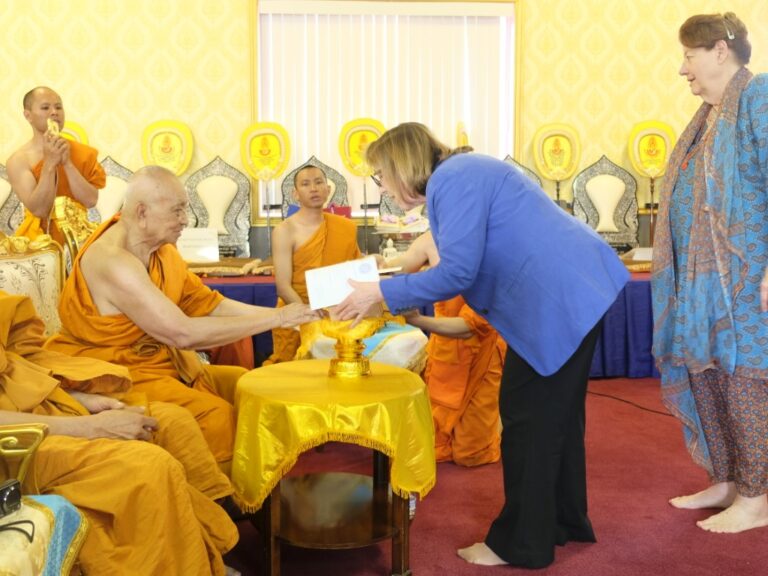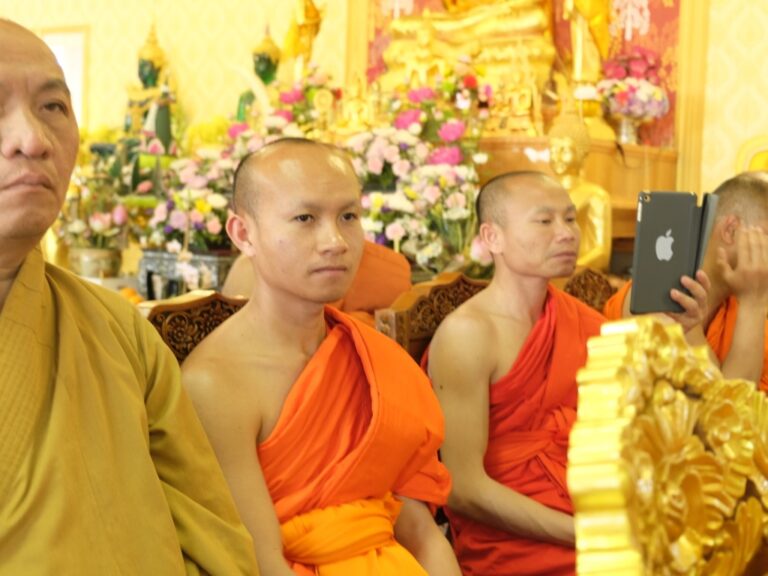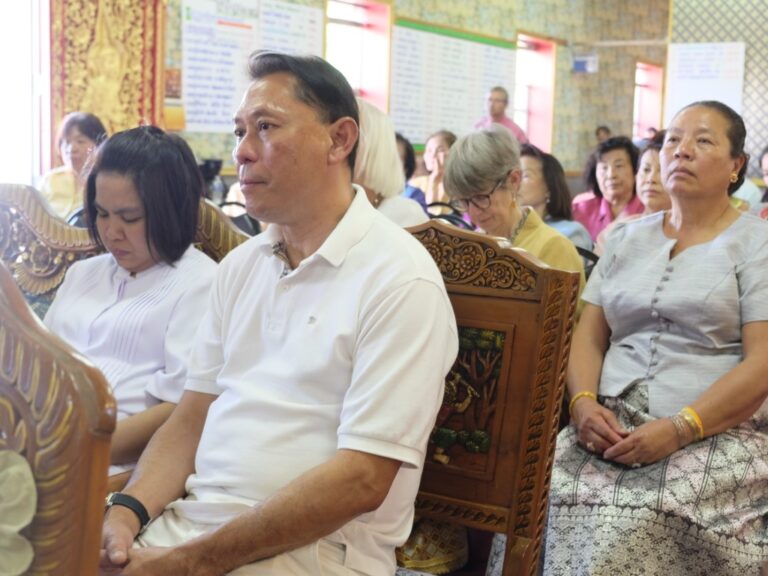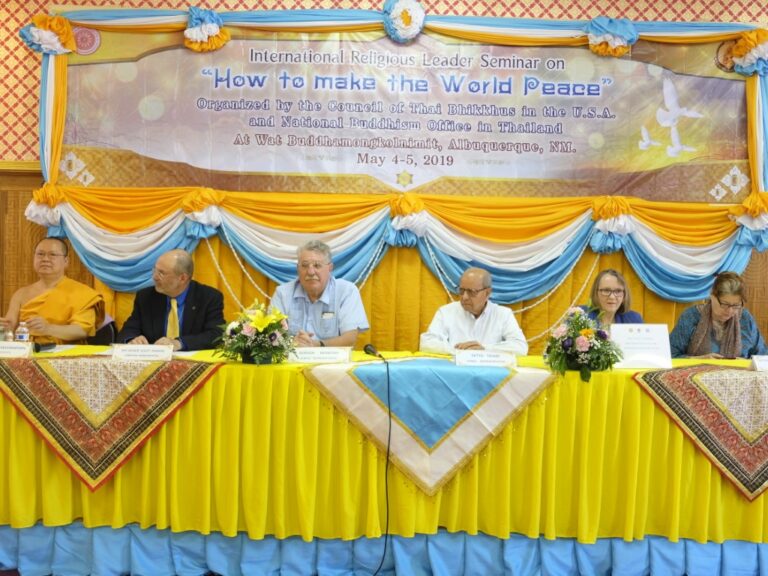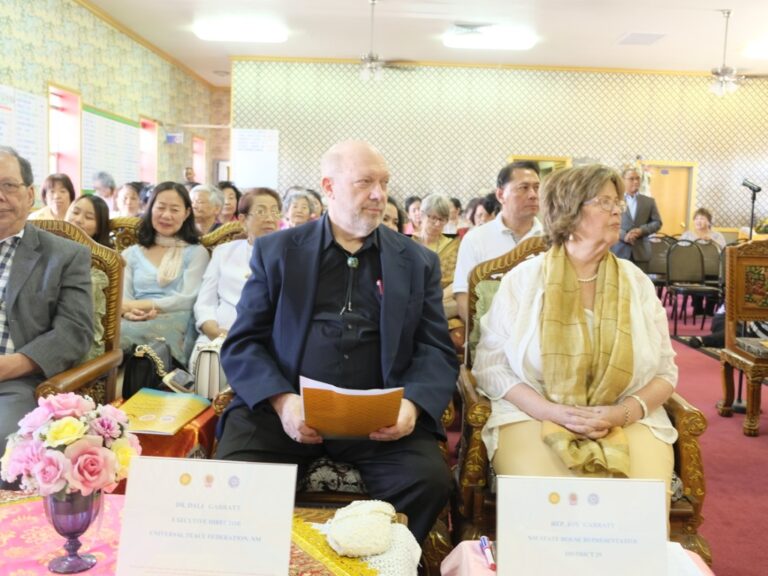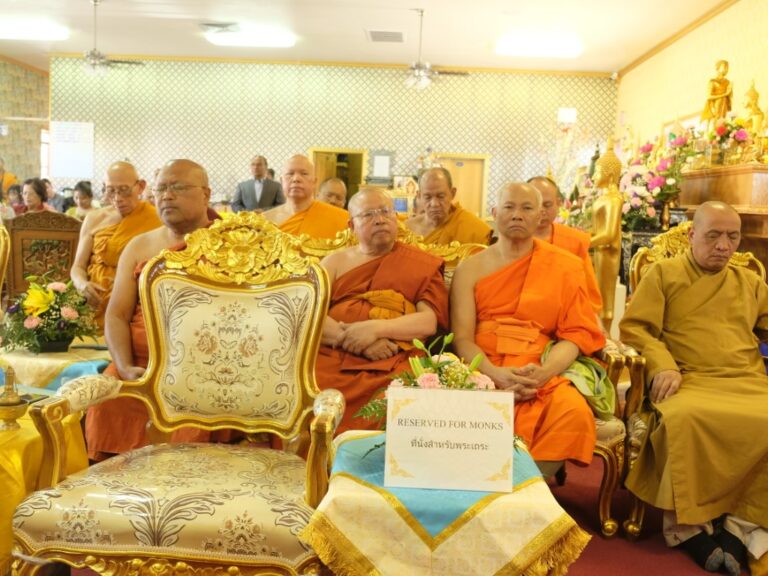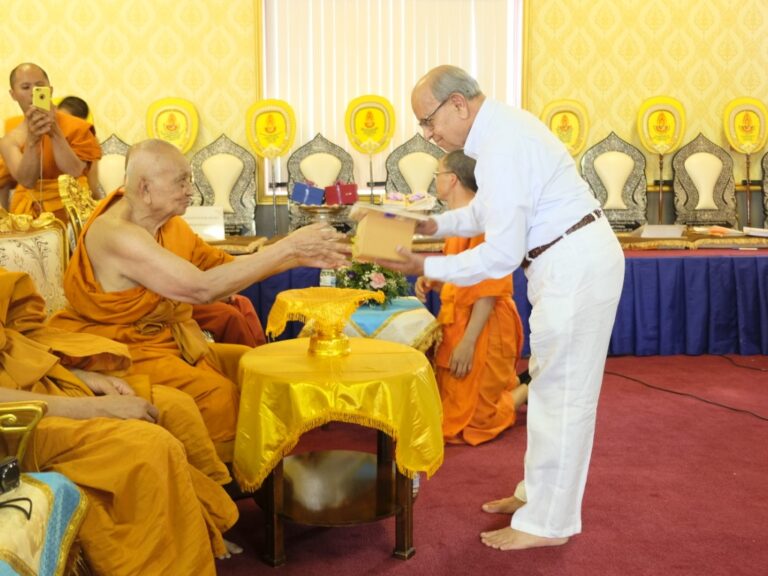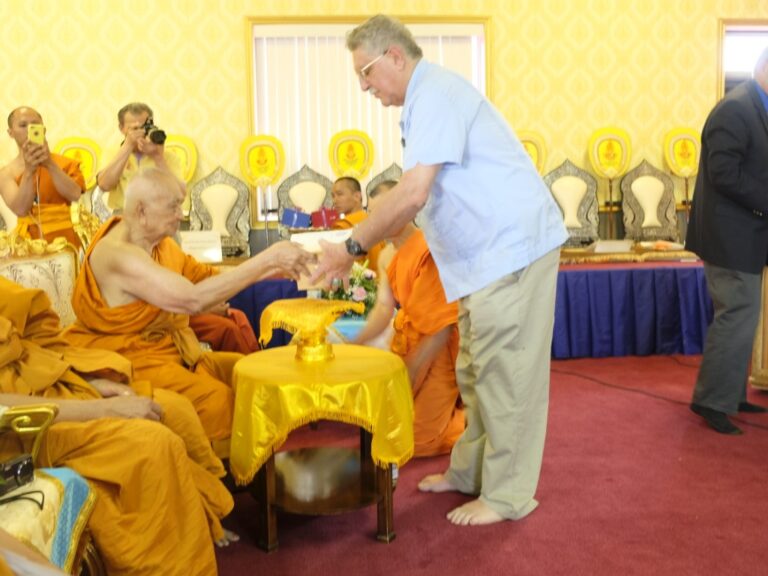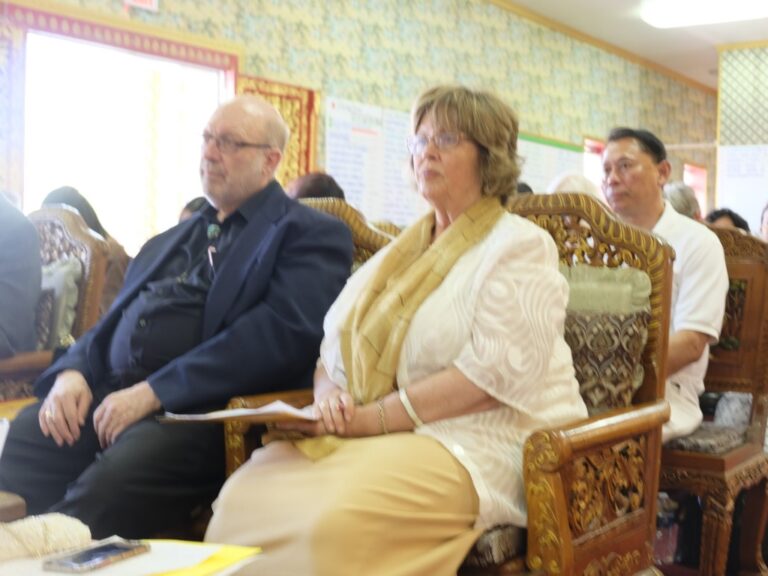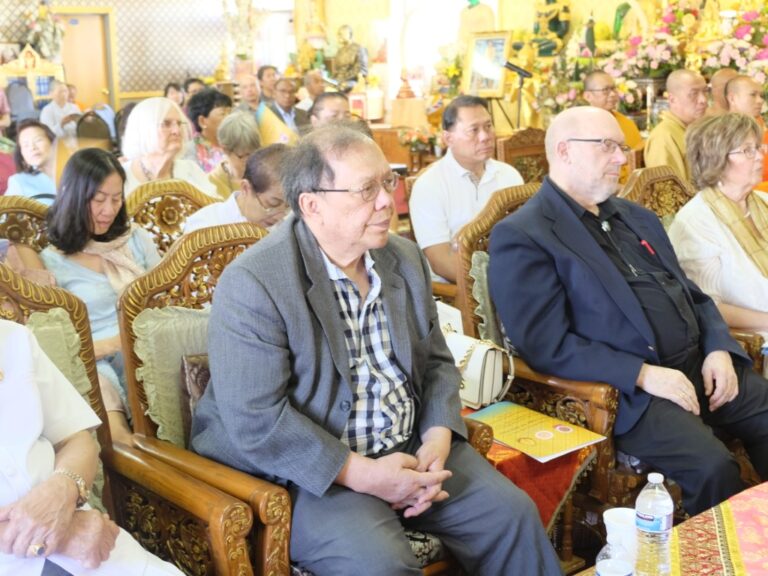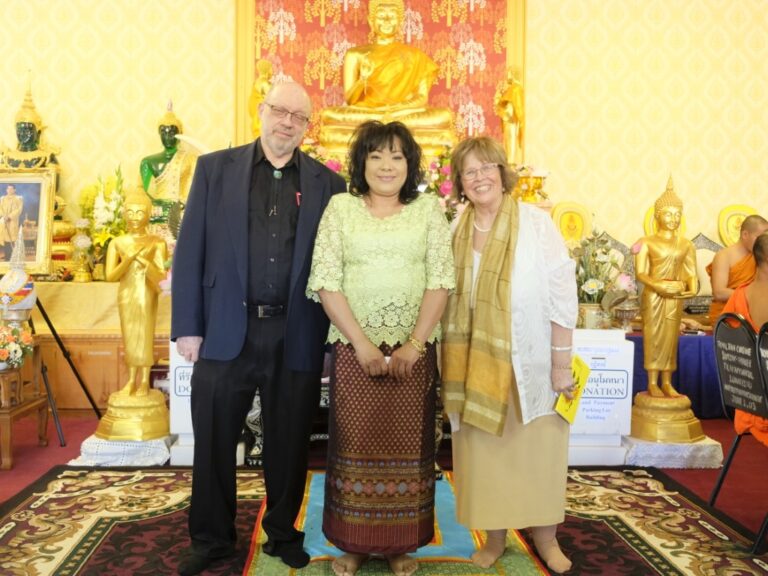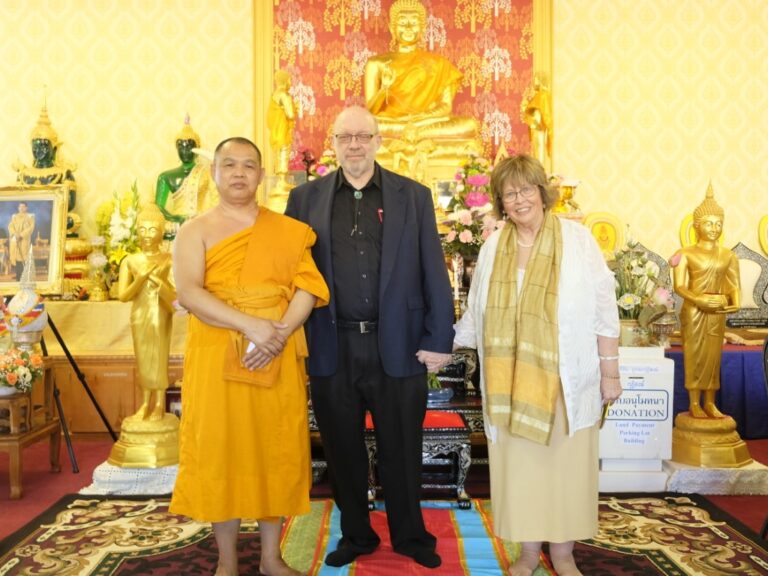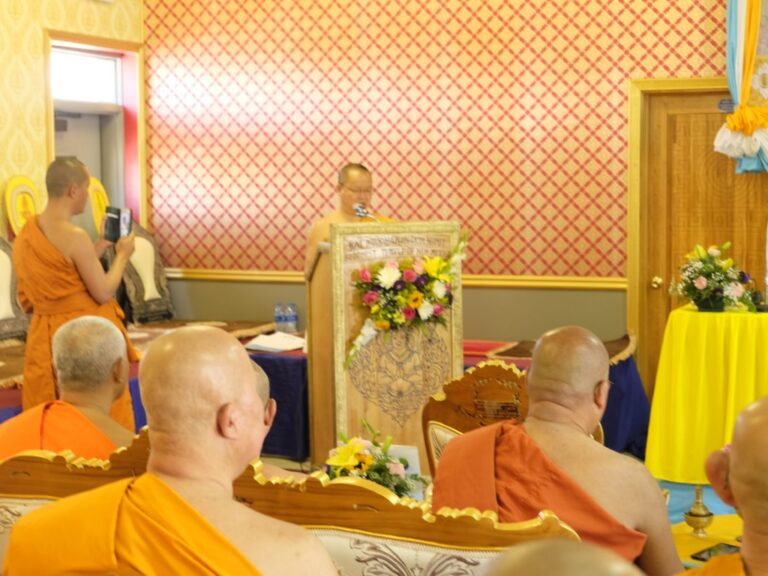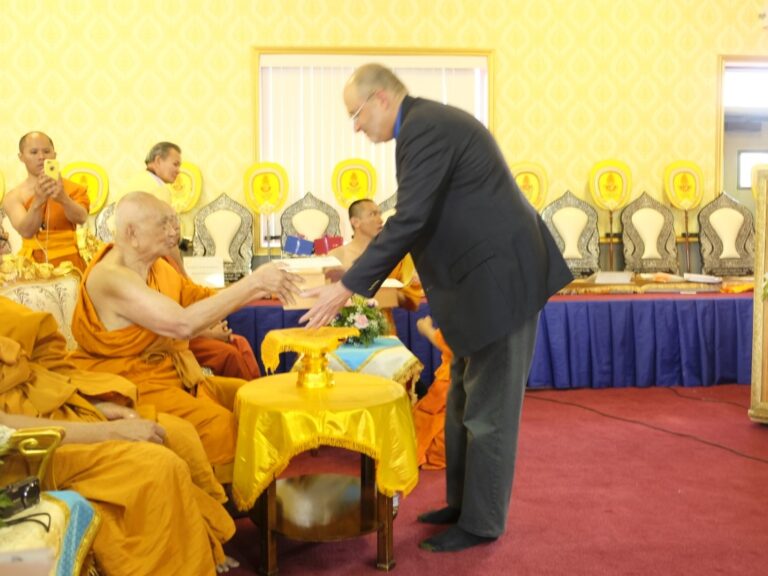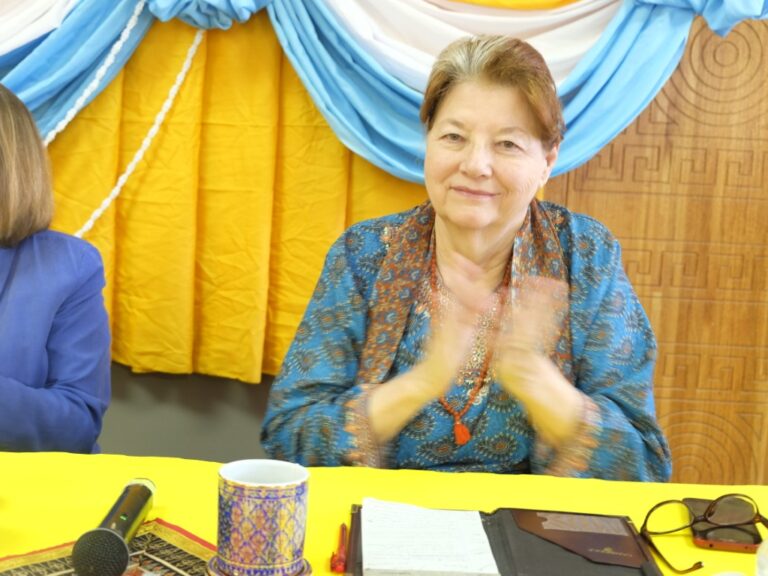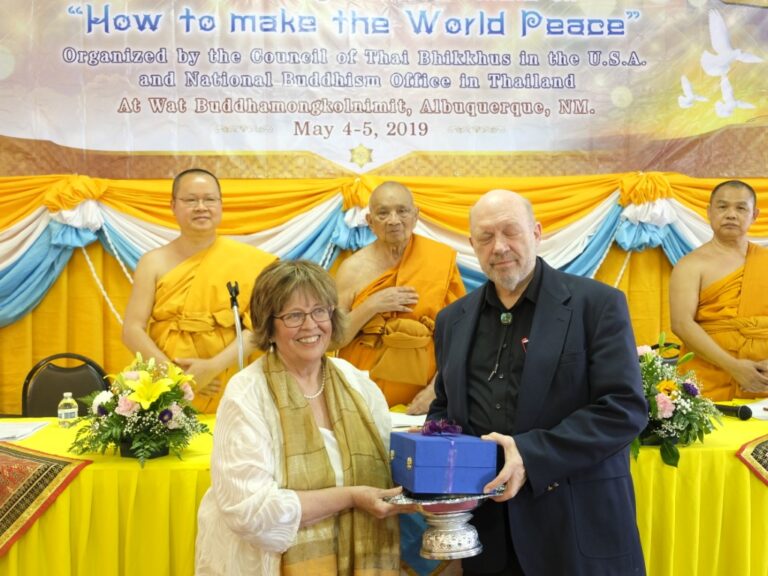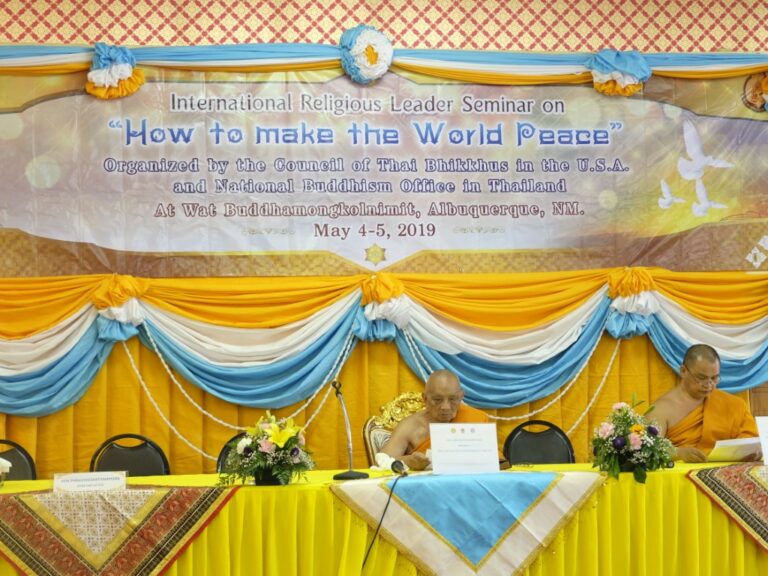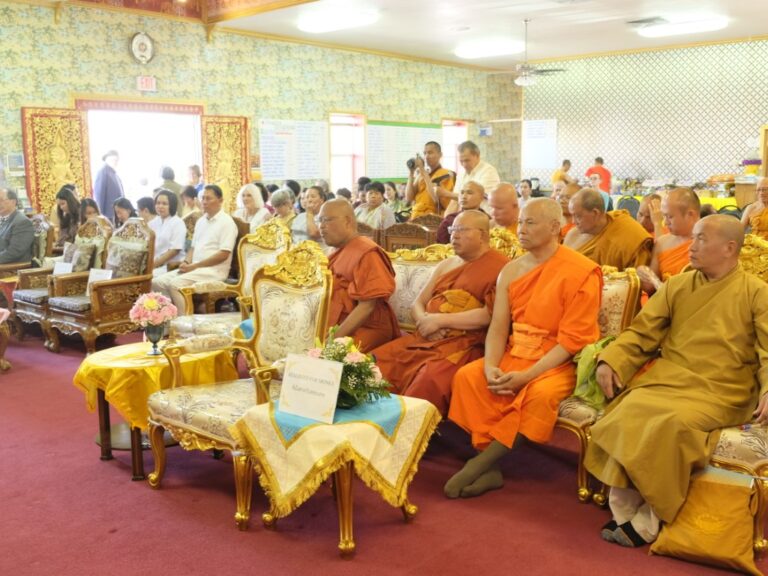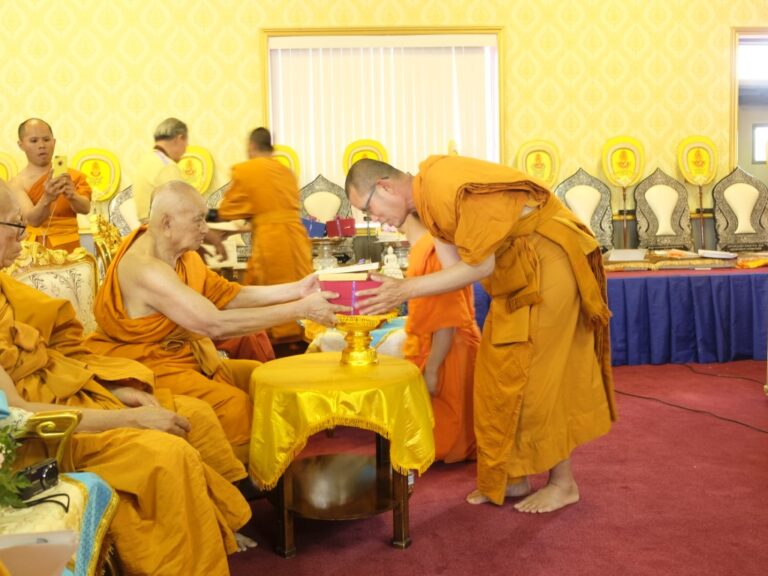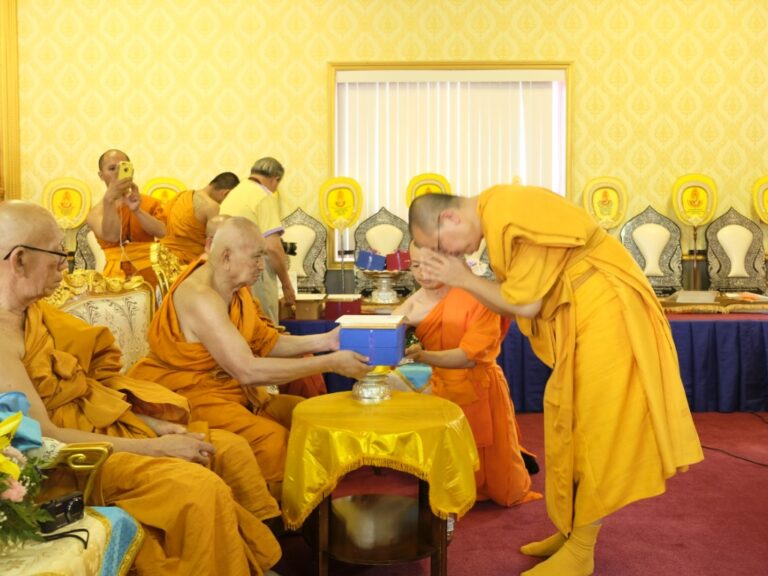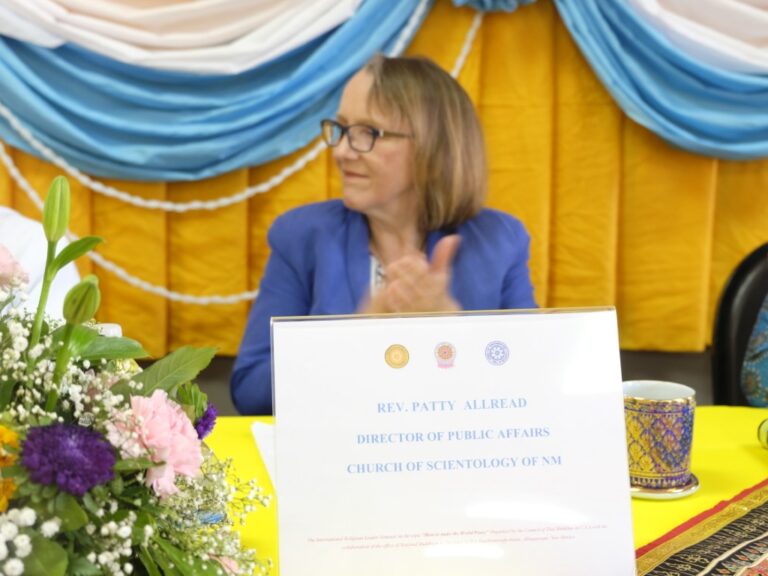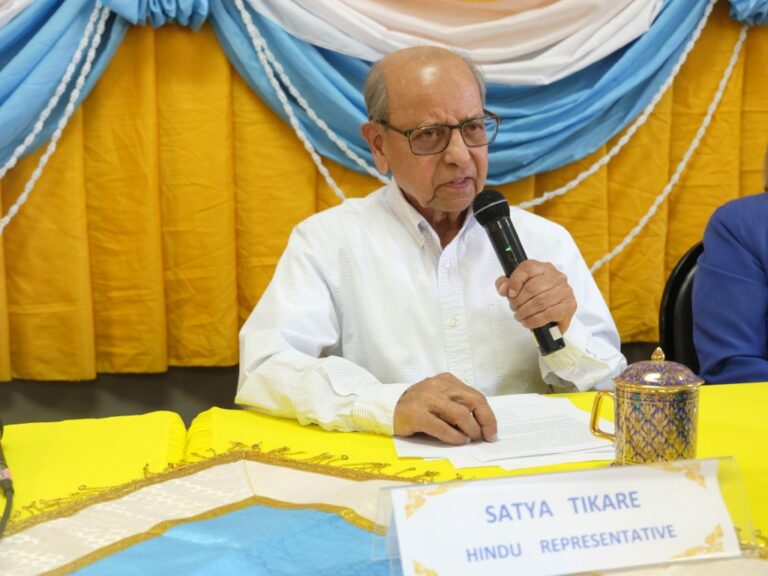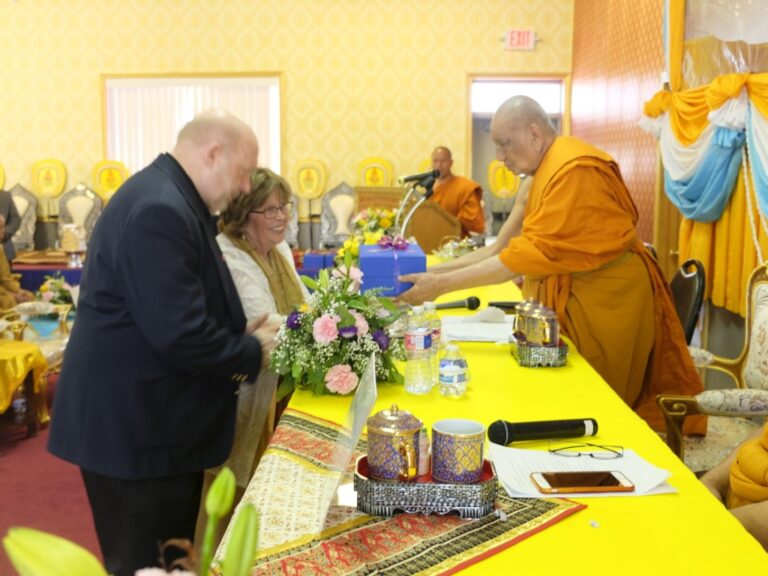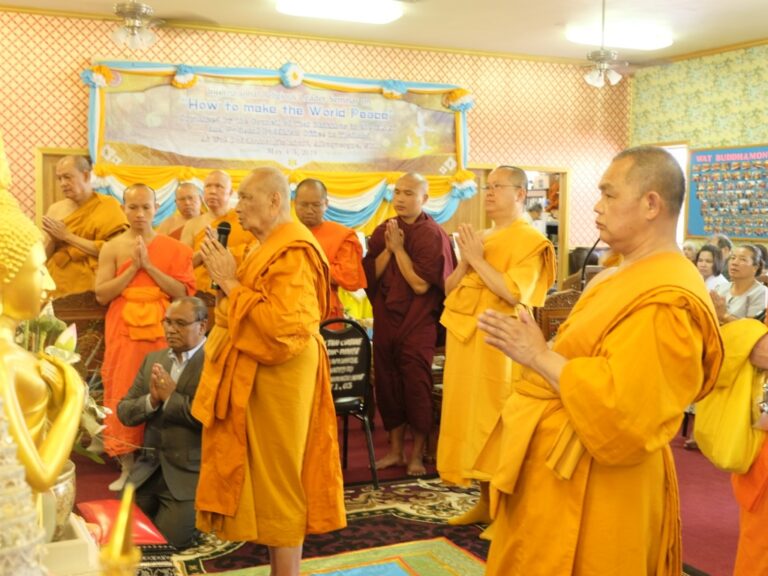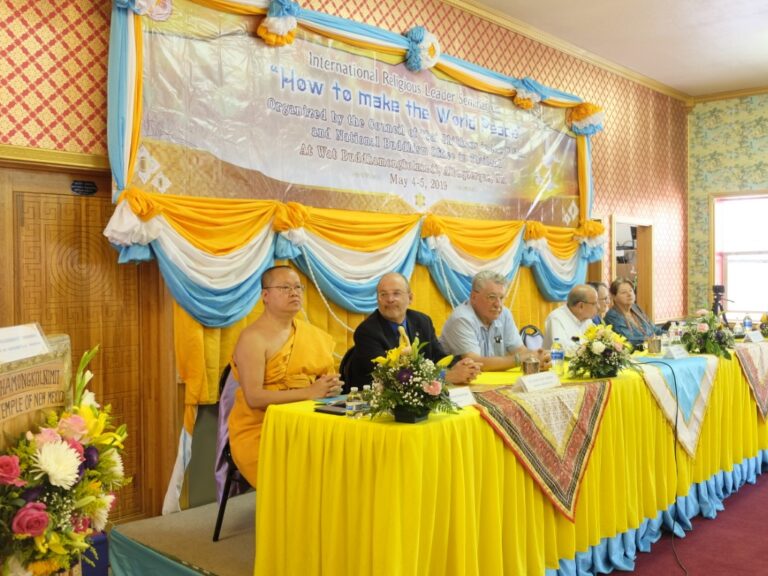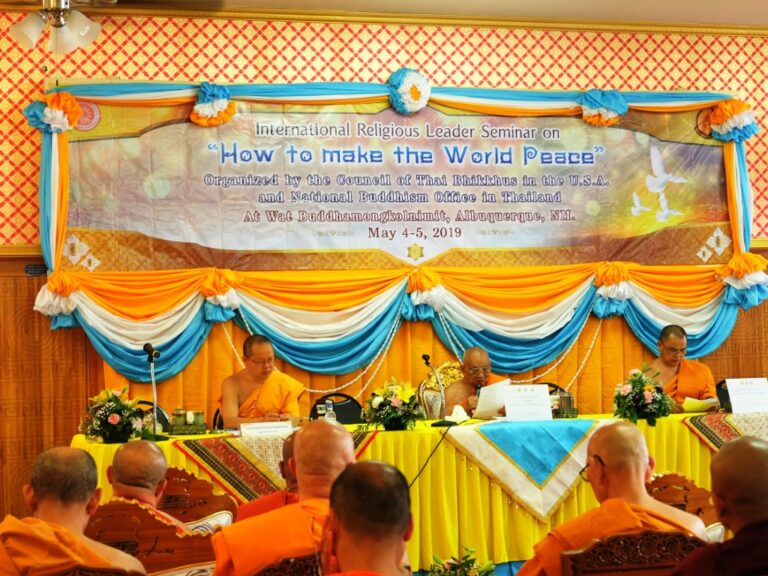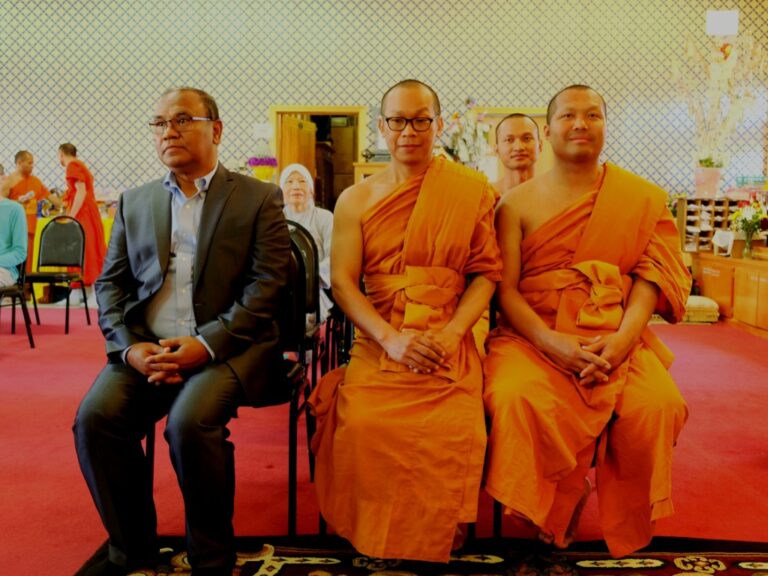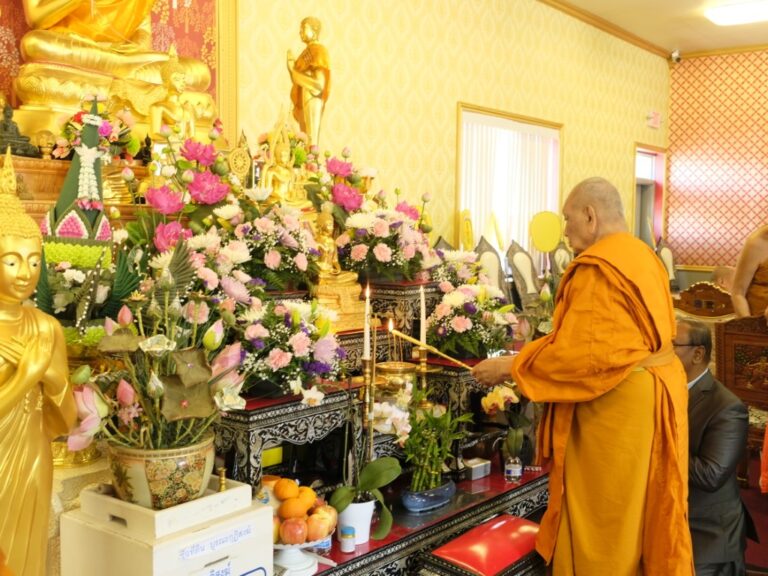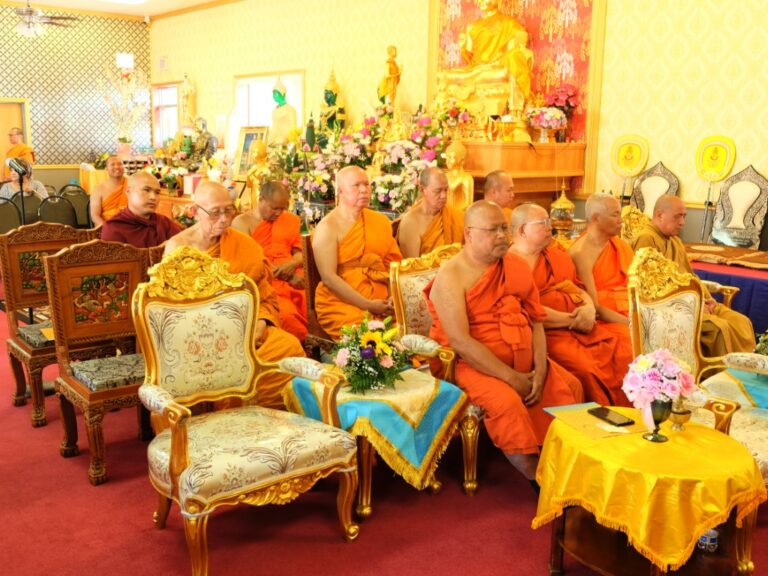[vc_row type=”vc_default” css=”.vc_custom_1473180234920{padding-bottom: 50px !important;}”][vc_column offset=”vc_col-lg-offset-1 vc_col-lg-10 vc_col-md-offset-1 vc_col-md-10″][vc_column_text css=”.vc_custom_1648088160841{padding-bottom: 40px !important;}”]
The Theravāda Buddhist Path to World Peace*
Speech by Ven.Dr.Phra Videsratanaporn
Secretary-General of C.T.U
At Wat Buddhamongkolnimit NM, USA
[/vc_column_text][vc_column_text css=”.vc_custom_1648088451855{padding-bottom: 40px !important;}”]Peace in the world according to Theravāda Buddhism requires two main things, we can say. First, it requires developing peace in the mind. There can be no peace outside in the world unless there is first peace within the mind. This peace in the mind comes about in several ways.
It comes about, first, through the recognition that the truth of human life is the Four Noble Truths:
- The Noble Truth of suffering: There is suffering (unsatisfactoriness in all its forms) in human lives because life never satisfies us and is always changing.
- The Noble Truth of how suffering comes to be: Suffering comes to be because of desire.
- The Noble Truth of the end of suffering: Getting rid of desire is getting rid of suffering.
- The Noble Truth of the way leading to the end of suffering: The Noble Eightfold Path is way that leads to the end of suffering (it includes right understanding, right thought, right speech, right action, right livelihood, right effort, right mindfulness, and right concentration).
[/vc_column_text][vc_row_inner][vc_column_inner width=”2/3″ css=”.vc_custom_1473181697822{padding-bottom: 40px !important;}” offset=”vc_col-lg-offset-2 vc_col-lg-8 vc_col-md-offset-2 vc_col-md-8 vc_col-sm-offset-2″]
[vc_column_text css=”.vc_custom_1648088030577{padding-top: 20px !important;padding-bottom: 20px !important;}”]“All tremble at the rod. Life is dear to all.
Comparing others with oneself, one should neither
strike nor cause to strike.”
— Dhammapada, verse 130, Narada Thera translation.
[/vc_column_text]
[/vc_column_inner][/vc_row_inner][vc_column_text]Peace of mind also comes about through the acceptance of the Five Precepts for morality:- Not destroying living things
- Not taking things not given to us
- Not getting involved in sexual misconduct
- Not lying
- Not using intoxicants
Peace of mind comes about, too, through the development of mind in concentration meditation and insight meditation:
- In concentration meditation we focus on the breathing-in and breathing-out as we rid the mind of such poisons as anger and stress. This concentration helps prepare us for insight meditation.
- In insight meditation we observe our body, feelings, mind, and mental objects, making our whole life a life of meditation and in the process discovering the three characteristics of existence: impermanence, suffering, and no-self.
[/vc_column_text][/vc_column][/vc_row][vc_row type=”vc_default” css=”.vc_custom_1473180314875{padding-bottom: 50px !important;}”][vc_column]
[/vc_column][/vc_row][vc_row type=”vc_default” css=”.vc_custom_1473181025409{padding-bottom: 50px !important;}”][vc_column offset=”vc_col-lg-offset-1 vc_col-lg-10 vc_col-md-offset-1 vc_col-md-10″][vc_column_text css=”.vc_custom_1648088583652{padding-bottom: 40px !important;}”]Through this practice of meditation we learn how to let go of everything and everyone in the world and achieve peace and freedom within our minds.So peace in the world first requires the development of peace in the mind. The second main thing that peace in the world requires is the development of peace in society, not just the society of a country but global society as well. This peace in society can be developed in a couple ways.
[/vc_column_text][vc_row_inner][vc_column_inner width=”2/3″ css=”.vc_custom_1473181697822{padding-bottom: 40px !important;}” offset=”vc_col-lg-offset-2 vc_col-lg-8 vc_col-md-offset-2 vc_col-md-8 vc_col-sm-offset-2″][vc_column_text css=”.vc_custom_1648089034501{padding-top: 20px !important;padding-bottom: 20px !important;}”]
“A wheel-turning monarch . . ., who thus provides lawful protection, shelter, and safety for all, is the one who rules by Dhamma only. And that rule cannot be overthrown by any hostile human being.”
— “The Budda
[/vc_column_text]
[/vc_column_inner][/vc_row_inner][vc_column_text]First, we live in the four divine abodes:- Loving-kindness: We spread loving-kindness to all human beings not only through our friendliness but also through our actions on behalf of the welfare of others.
- Compassion: We show compassion to our fellow human beings through actions that help take away their suffering.
- Sympathetic joy: We have sympathetic joy at the good fortune of others, getting rid of our selfish desires and focusing on the happiness of our fellow human beings.
- Equanimity: We maintain a life of equanimity, accepting both the good and the bad things that happen to us without losing our balance.*
Second, peace in society can be developed by behaving in terms of the four favorable characteristics for harmonious living, characteristics that apply within one country and across all countries:
- Generosity: giving material goods and our time to fellow human beings. On the international scene, for instance, this translates into “global generosity,” not nationalism and militarism.†
- Friendly speech: using speech that is kind and polite and helpful. Friendly speech in politics, for example, includes honest deliberation with political foes, not partisan half-truths (or out-and-out falsehoods).
- Beneficial conduct: providing useful service to other persons. In economics, this involves finding alternatives to unabashed capitalism, which causes economic injustice (to say nothing about the depletion of natural resources).
- Impartiality: treating all human beings equally without favoring some over others. This amounts to promoting the brotherhood and sisterhood of all persons, not racism and xenophobia.
To the extent that human beings can live in the four divine abodes and can put the four favorable characteristics into practice in their lives, they will promote harmony in society and help bring about world peace.[/vc_column_text][/vc_column][/vc_row][vc_row type=”vc_default” css=”.vc_custom_1473180314875{padding-bottom: 50px !important;}”][vc_column]
[/vc_column][/vc_row][vc_row type=”vc_default” disable_element=”yes” css=”.vc_custom_1648093488309{padding-bottom: 50px !important;}”][vc_column][/vc_column][/vc_row][vc_row type=”vc_default”][vc_column offset=”vc_col-lg-offset-1 vc_col-lg-10 vc_col-md-offset-1 vc_col-md-10″][vc_column_text]To the extent that human beings can live in the four divine abodes and can put the four favorable characteristics into practice in their lives, they will promote harmony in society and help bring about world peace.So world peace requires the development of peace in society. In order to develop this peace we have to speak out, we have to take action, each person in his or her own way. The future of the world is at stake.‡
The ideal layman, then, is described in the Pāli Canon in the story about Magha, the god Sakka in a previous life.§ Magha’s life in his village exhibits characteristics of a moral householder, for example, forbearance, compassion, loving-kindness, right livelihood, and heedfulness. Most notably, Magha does not harm living things.
The ideal ruler, furthermore, is also described in the Canon: He is the wheel-turning monarch. The Buddha says, “A wheel-turning monarch . . ., who thus provides lawful protection, shelter, and safety for all, is the one who rules by Dhamma only. And that rule cannot be overthrown by any hostile human being.”║It can be said, moreover, that the wheel-turning monarch promotes the wellbeing of his kingdom through generosity, not through punishment. In the story about a rich king, the Buddha recounts the words of the chaplain to the king. The chaplain tells the king what will happen in his kingdom if he is generous. These words about the generous king can apply to the wheel-turning monarch as well. The chaplain says, “Then those people [in the kingdom], being intent on their own occupations, will not harm the kingdom. Your Majesty’s revenues will be great, the land will be tranquil and not beset by thieves, and the people, with joy in their hearts, will play with their children, and will dwell in open houses.”# This is a vision for a peaceful country and for a peaceful world.
(Edited by Du Wayne Engelhart)*
Wat Thai Washington, D.C. April 30, 2019[/vc_column_text][/vc_column][/vc_row]


